
Chief Executive Officer














Chief Executive Officer












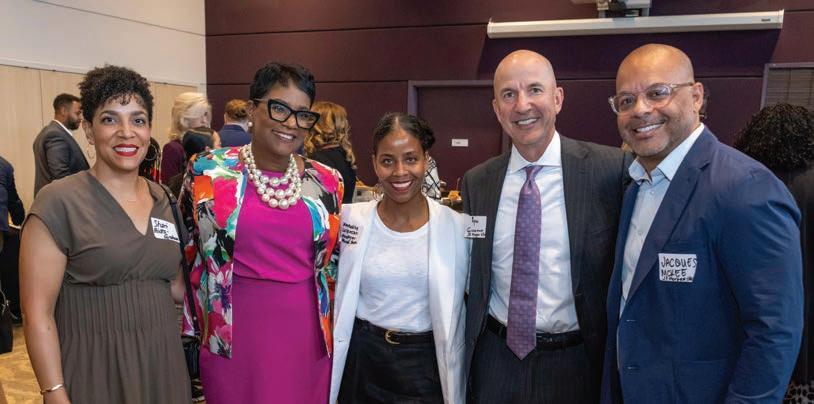
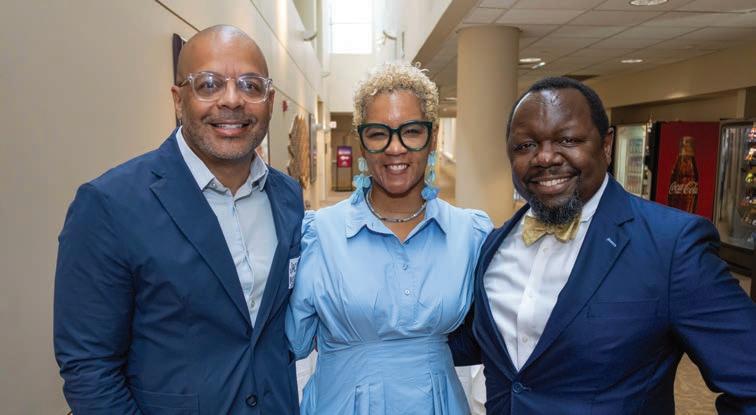


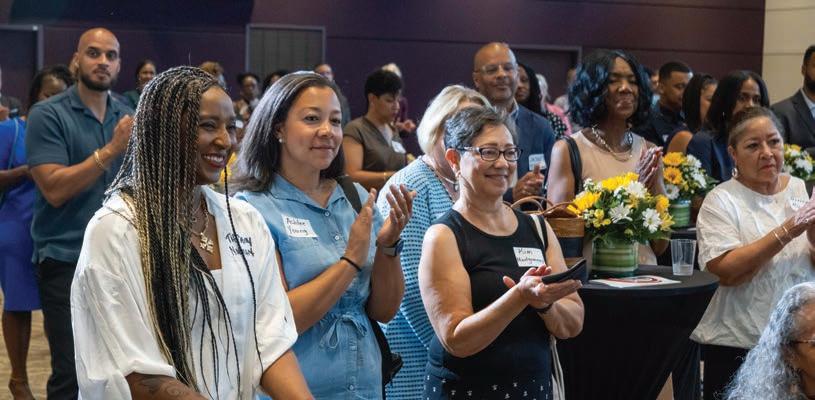
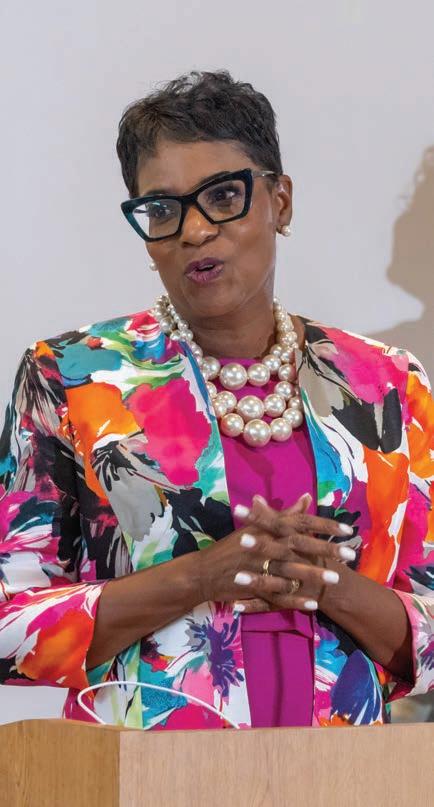


Three Time Grammy Award Winner Rapper Killer Mike in Columbus for the Real Men, Real Talk Event Sponsored by the African American Male Wellness Agency pg. 20
Daryl Murphy’s Journey of Health & Fitness
Mahogany Columbus 2024 Class of Most Influential Men of Color 10.
Grammy Award Rapper Killer Mike Visits Columbus
Mahogany Columbus 2024 Legend of the Year
Could We Have America’s First Black Woman President
Embracing Tech: Starting Your Journey to Digital Fluency
Columbus Symphony Plans New Music Hall
Mahogany Columbus 2024 Man of the Year


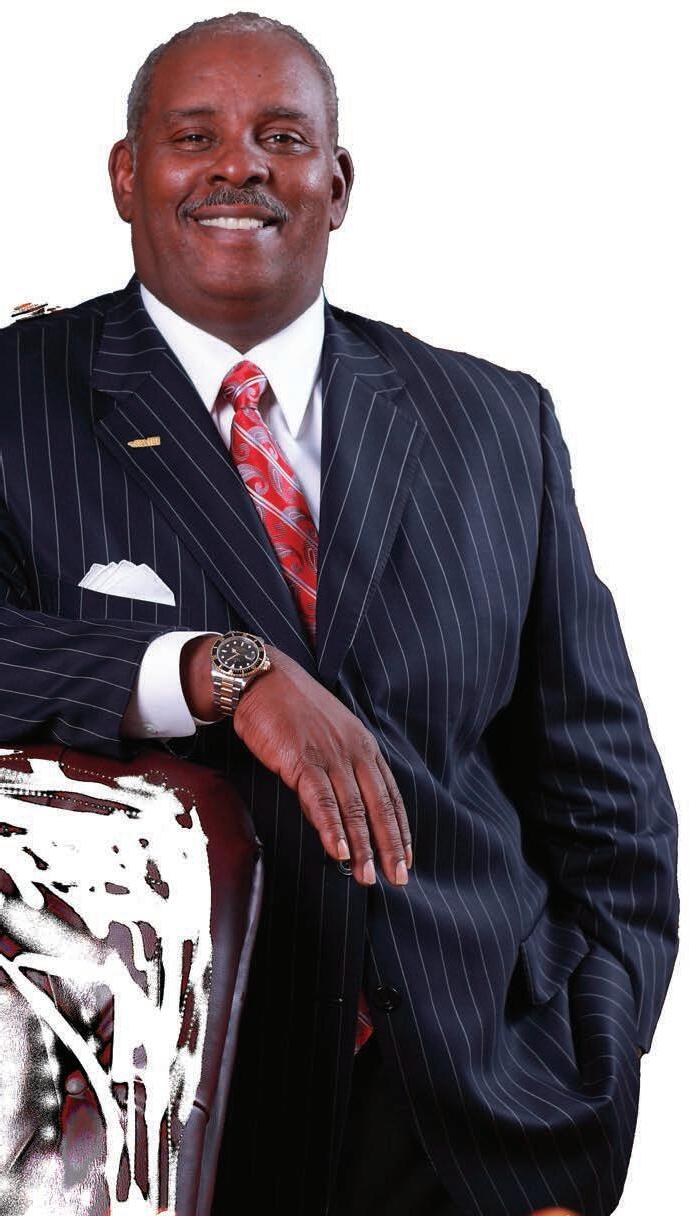
Both Mark Twain, and international sales trainer guru Brian Tracy have written books about ‘Chasing or Eating the Frog: It simply means that you must tackle your biggest and most demanding tasks the very first thing in your day.
Mark Twain said it best, “that if the first thing you do each morning is to eat a live frog, you can go through the rest of the day with the satisfaction of knowing that this is probably going to be the worst thing that will happen to you all day long.”
Your FROG is Your Biggest and Most Important Task That Most Likely You’ve Been Procrastinating on Getting Done
The most effective executive’s 1st Rule of Frog Eating is: if you must eat two frogs in a day, always eat the ugliest one first… as there will never be enough time to get everything you have to get done most days. Like me, you are probably swamped with other responsibilities and projects, needing to catch up on, and personal things to get done. But most normal humans; you are overwhelmed with so much to do, and too little time to get them done. As you struggle to get caught up, new tasks and responsibilities keep rolling in, like the waves in the ocean. I’ve read countless books and articles on personal efficiency and effectiveness. To help and assist you in learning how to become more effective and efficient, check out books written by Brian Tracy, Stephen Covey, Peter Drucker, John Maxwell, or Jim Rohn, that may assist you in being a more efficient executive.
If you get in the habit each day of writing down two or three of the most important tasks that you need to accomplish each day, you’ll be much more productive in business. Some leaders do it before they leave work each day to plan for tomorrow. Others wake-up early to make out their daily “To Do” list. Entrepreneurship is a practice, the more you practice the better you’ll become more efficient.
C. Sunny Martin Founder/Managing Partner Mahogany Media Group



“The men in this issue bear witness to how diverse voices, leadership, and perspectives lead to more innovative and effective solutions in our community.”
By W. Kay Wilson
Celebrating and uplifting men of color in spaces where they are often marginalized and villainized is crucial for fostering a fair and just society. Too frequently, workplaces, media, and community settings fail to recognize the true worth and potential of these men. This neglect perpetuates harmful stereotypes and creates barriers that impede their professional progress.
At Mahogany Media we see the urgent need to spotlight the accomplishments and contributions of men who are traditionally marginalized. This issue holds a light to recognize some remarkable men for their successes and talents, challenging the negative narratives that seek to undermine their value. This recognition is not just about honoring individuals but also about setting a positive example for younger generations. This issue demonstrates that despite the obstacles, no matter the bias you encounter, you can achieve greatness and thrive.
Each page is in full color, as an example of the rich tapestry of Columbus landscape and workplaces. These pages bear witness to how diverse voices and perspectives lead to more innovative and effective solutions, especially in dynamic fields like technology and leadership. Men of influence and titans of tech who exemplify how authentic leadership can pave the way for greater equity and opportunity. Their impact extends beyond their immediate spheres, offering guidance, support, and inspiration to others striving for similar success.
I was deeply moved to hear how each of these gentlemen learned from following and how it played a critical role in the journey to their success. They serve as beacons of hope, showing that ascending the ranks in historically underrepresented industries is possible. Their presence not only breaks down barriers but also enriches the talent pool in Central Ohio. Organizations that recruit and retain diverse teams benefit from a wealth of perspectives, leading to more innovative decision-making. As the adage goes, diversity drives innovation—especially true in tech, where varied viewpoints contribute to groundbreaking solutions.
Although we highlight a cadre of gentleman who are either in the C-suite, or brought their own seat to the table, significant barriers to equity remain in Columbus. It’s an honor to share rich content on distinguished men striving to bring authentic leadership, marked by influence, impact, and integrity, is essential to this transformative journey.

7:00PM- 11:00PM | COSI
PRESENTING SPONSORS: FRIDAY, SEPTEMBER 20, 2024


Daryl Murphy’s Journey of Health, Fitness, and Community
By Anthony King
In Columbus, Ohio, Daryl Murphy stands out for his achievements in running and his dedication to making a difference. A sales executive by day and a community coach by evening, Daryl has transformed his love for running into a tool for social change and community building.
Murphy’s journey began in Sandusky, Ohio, and took him through Ohio State University, then to Los Angeles, and back to Columbus. As a sales executive for NBC4, he manages advertisements, while his passion for running led him to become the community coach for the Nike Eastern Run Club. Balancing these roles with his responsibilities as a husband and father, He integrates personal passions with professional duties and community activism.
Murphy, as an African American leader in the running community, breaks stereotypes and inspires others to participate. By sharing his story and engaging with the community, Murphy promotes diversity in running.
His passon for running led him to becoming the coach Nike Easton Run Club...
“Balance is something I’m still trying to work on daily,” Murphy admits. He schedules his runs around family time, often taking his daughter along in a stroller for evening runs. This dedication highlights his philosophy: integrating health and family life.
Murphy’s significant contribution to the community is through Miles for Justice (MFJ). Founded in 2020 in response to George Floyd’s murder, MFJ combines
his passion for running with his commitment to social justice. As of July 19, 2024, Murphy has run 1,557 consecutive days of at least a 5k (3.1 miles) to bring awareness and change through running.
MFJ1: Black Lives Matter raised $5,000 for the Grassroots Law Project, MFJ2: Say Her Name Raised $5,000 for Until Freedom, supporting justice for Breonna Taylor, MFJ3: Little Free Libraries raised $10,000 to establish Little Free Libraries in marginalized communities, MFJ4: Acquit Dewitt focuses on raising awareness and advocating for Dewitt McDonald Jr., wrongfully incarcerated for 30 years.
Murphy’s vision for MFJ is about equity in the community. The focus is now on addressing health disparities, encouraging movement for better mental and physical health. Murphy advocates for starting where you are and moving in any form as a pathway to a healthier life.
The Journey as a Community Coach with Nike and Goals Ahead
As the Community Coach for the Nike Easton Run Club, Murphy makes running accessible and enjoyable for everyone. Launched in August 2023, the club has become a hub for runners of all levels. “We have so many people who have never run outside before,” Murphy says, emphasizing inclusivity. The club offers various pace groups, including walking, ensuring everyone can participate.
Running has been a constant in Murphy’s life since high school. Despite initial challenges, including


Murphy has raised awareness and funds through Miles for Justice initiatives
a stress fracture, he found his stride. Murphy has completed four marathons, with his personal record improving each time. His next goal is a 2:43 finish in the Chicago Marathon.
Daryl Murphy’s journey exemplifies how one person’s passion can drive meaningful change. Through running, his professional roles, and community initiatives, Murphy promotes health, fitness, social justice, and community empowerment. His story demonstrates the impact of dedication, balance, and a commitment to equity.
For those looking to support Daryl Murphy or would like to get involved with Miles for Justice, you can find out more information at milesforjustice. org! You can also join him for a walk or run every Tuesday at 6pm at Nike Easton.

Since 2016, politics in the U.S. presents so many unexpected events that one could think the American public has developed a kind of immunity to surprise. The events of Sunday, July 21, 2024 would suggest otherwise. In a shock to politicos and the public alike, Joe Biden announced he was stepping down as the Democratic nominee for president via social media post, a historic moment no doubt. But his decision just hours later to immediately and publicly endorse Vice President Kamala Harris to succeed him as the nominee has the potential to do what some thought truly impossible—elect a Black woman to be the President of the United States.
Biden’s endorsement of Kamala was in no way a given for a couple of reasons. First, throughout the initial Biden-Harris term, she faced relentless criticism of her performance in interviews, public appearances, and mastery of policy issues in her portfolio like immigration. The attacks were so consistent that the White House released a statement towards the end of their first year in office to clarify that the President continued to support her. Even as recently as 2023, national publications like The Atlantic published articles examining why Washington insiders doubted whether Kamala was ready to be president.
The second reason is a conventional wisdom that political operatives and pundits have long-held--women, and Black women in particular, are less likely to be elected in big statewide or national races because of inherent sexism and racism amongst certain segments of the American public. This perception holds despite, for example, Black women like Justice Melody Stewart notching wins to get elected to the Ohio Supreme Court.
Research, however, suggests that skepticism of women’s electoral prospects, especially among Democratic voters, is a self-fulfilling prophecy. In other words, voters are less likely to support women because they anticipate those candidates will face media bias and have a harder time garnering support from other voters. When shown evidence that women can generate sufficient support, voters’ willingness to support women candidates increases.
In choosing to back Kamala right away, President Biden essentially told the political class to kick rocks with their conventional wisdom. He avoided what would have been a potentially disastrous month of constant speculation over which type of Democrat had the best chance of beating Donald Trump, a process that-if prior experience is any indication-would have landed on “experts” deciding a white guy was our best hope.
Instead, President Biden had enough confidence in Kamala, his administration’s record, and, ultimately, the American people to tee up the potential election of the first Black woman president in less than one hundred days. Much work remains, but a series of political surprises on a Sunday afternoon in July might have just accelerated the shattering of one of the most enduring glass ceilings in politics.
By Morgan Harper



As we join in celebrating the “tech titans” who shape the futures of organizations and communities, let’s not overlook the importance of becoming “tech savvy” in our homes and workplaces. In today’s world, global technology leaders are revolutionizing how we live, work, and play through rapid advancements in technology.
Jamie Metzl, a leading technology and healthcare futurist, describes the time we live in as a period of technology “superconvergence,” where technologies intersect and evolve at an unprecedented pace. Digital technologies now profoundly influence every aspect of modern life, from education and work to entertainment and healthcare. Online learning has democratized education, while video conferencing and virtual assistants like Siri and Alexa connect us in more flexible ways. AIdriven platforms personalize our experiences and streamline everyday tasks, showcasing the pervasive influence of AI across various domains.
For those who are not yet proficient with technology, the implications are significant. Understanding and effectively using technology are crucial skills in navigating modern life. Sylvester Johnson, Executive Director for the Tech for Humanity Initiative, warns of the inequalities that can arise from unequal access to technology and its benefits, impacting everything from access to information, employment options, and economic opportunities.
To embark on the journey of becoming tech savvy, here are four practical steps that can build foundational skills:
Explore and Use Different Technologies: Many of us have smartphones but use few of their capabilities. Discover new capabilities of your smartphones, computer, and
online platforms. Experimentation builds familiarity and proficiency. Use technology available to you to solve everyday challenges, from troubleshooting devices to finding information online.
Take Courses and Stay Informed: Enroll in online courses and workshops focused on technical skills. Stay updated with technology news and trends.
Learn from Digital Natives: The young people in our lives, who grew up around technology, can serve as informal mentors on creative and purposeful uses of accessible technologies.
Read and Reflect: Each of us can reflect on how technology impacts society, relationships, and ethical considerations.
By embracing lifelong learning and adapting to technological changes, individuals can enhance their resilience and thrive in a rapidly evolving digital landscape. This journey towards tech literacy ensures personal growth and prepares individuals to contribute effectively in an increasingly technology-driven world.
By Dr. Christopher Washington
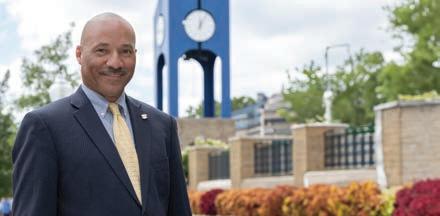

By Will Burrus
Over the last 25 years, technology has been a guiding light in Will Burrus’s life. A college dropout chasing dreams of becoming a hip hop producer in the early 90s, Will faced significant setbacks. However, a Microsoft Certification program changed his trajectory, enabling him to self-study his way into a career in Information Technology during a fascinating transitional period—post-mainframe and pre-internet—when the world was just beginning to recognize technology’s potential. This opportunity led to a successful career as an executive and entrepreneur. Will has served as Chief Technology Officer for four companies, built and sold ventures, developed and patented inventions, appeared on CNBC, delivered a TED talk, and spoken to global executives on leveraging emerging tech trends. His ongoing journey exemplifies the adage, “If you can dream it, you can achieve it,” though it has been marked by both challenges and profound lessons.
Early in his career, Will thrived as an IT consultant. At the turn of the century, he joined his first startup, where he and six teammates transformed an empty office into a successful financial consultancy. This experience sparked his entrepreneurial spirit and taught him that creating businesses was a viable path, not just working for others. Will discovered that technology could democratize access to information and opportunities. He made it his mission to develop tools that raise awareness for individuals and communities and break down barriers traditionally controlled by gatekeepers.
Will’s career has also shown him that timing is critical in the tech industry. In the early 2000s, he launched Tapit and Audio SOB to help independent musicians share and sell their music online, but these ventures were overshadowed by the emergence of iTunes. He also created Sem Basic, an AI chatbot and voice-driven language precursor to today’s LLMs and no-code tools, but this project stalled when SRI’s acquisition by Apple led to the creation of Siri. His most significant creation came with the Development Quotient, an algorithm to assess work perception for those without traditional credentials. Although this venture had to be scaled back due to challenges in fundraising for minority entrepreneurs, it provided career opportunities for overlooked individuals across the country.
Following LaborGenome, Will observed rapid
technological changes, such as the rise of Augmented Reality (AR) and Virtual Reality (VR). He founded an AR/VR consulting firm, Immersive.is, which developed products like a social work training simulator and various educational simulators. However, the rapid growth outpaced the team’s capacity, leading to significant stress. Will learned that innovative ideas are only successful if there is a competent team to execute the vision. He eventually sold his stake and shifted to a smaller consultancy, focusing on projects like shooting range simulators and 360 marketing videos.
Will’s career has been marked by failures, but these setbacks have been invaluable learning experiences. Through his various ventures, Will learned that experience is the best teacher. Despite initially feeling like an imposter due to his lack of a college degree, he leveraged his entrepreneurial experiences to offer unique value to CEOs and hiring managers. He became adept at articulating value, selling ideas, and balancing patience and empathy in chaos.
Ultimately, Will discovered that mindset is more important than skillset. Technology evolves so quickly that credentials become obsolete fast. What matters is the ability to listen, adapt, and learn. Will hopes to inspire young Black entrepreneurs to leverage technology as a tool for building wealth and opportunities in their communities, showing that technology can indeed be a great equalizer.













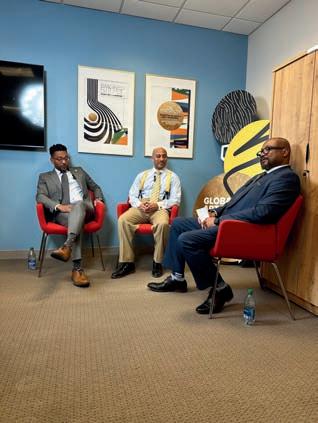








By: Anthony King
Michael Render, also known as Killer Mike, the Grammy Awardwinning artist and passionate advocate for the Black community, recently spoke at Real Men, Real Talk: Mask Off, a pivotal discussion focused on mental health within the African American community. Hosted by the African American Male Wellness Agency (AAMWA) at East High School in Columbus, Ohio, the event aimed to dismantle stigmas and provide a safe space for Black males to share their experiences.
Killer Mike opened up about his recent achievements and how they have impacted his mental health. “Going everywhere, being recognized by everyone for a multitude of reasons is new,” he said, reflecting on his expanding presence as a media personality. From his social commentary on Bill Maher to his award-winning show “Love & Respect,” Mike’s visibility has skyrocketed. He emphasized the importance of humility and gratitude, noting how these values keep him
grounded amidst his growing success.
“I try to treat every day like it’s a new thing, a new experience,” he shared. This mindset, he explained, helps him navigate the pressures of fame while maintaining a sense of joy and wonder.
When asked about practical steps he takes to support his mental health, Killer Mike highlighted the importance of a healthy lifestyle and dedicated work ethic. “Trying to eat better so I can get in shape,” he mentioned, along with committing more deeply to his studio work and business ventures.
One of his notable business efforts includes revitalizing a 50-year-old restaurant in Atlanta, transforming it from a modest establishment into a family-friendly sit-down venue. Additionally, his barber shop business, Swag Shop, continues to grow, offering both products and employment opportunities within his community.
Killer Mike is keen on leveraging his fame to build sustainable businesses that provide real jobs in his community. Inspired by figures like Magic Johnson


and Herman J. Russell, he aims to emulate their success in creating economic opportunities. “I want to be more like the men I’ve grown up admiring,” he said, referencing influential figures from his hometown of Atlanta.
Addressing the disparity in exposure to Black excellence in different regions, Killer Mike encouraged community leaders to actively seek and showcase local talent. “There’s Black excellence in Columbus. I wouldn’t be sitting here with Mahogany if not. I wouldn’t be here sitting in East High School. Absolutely, there’s excellence, and don’t let people tell you that there isn’t. If you can’t find it, be it,” he affirmed. He stressed the importance of visibility and representation, urging individuals to be the change they wish to see.
Established in 2004, the African American Male Wellness Agency (AAMWA) is dedicated to increasing the life expectancy of African American men by addressing disparities in premature death and chronic diseases. The organization focuses on six core areas: health, fatherhood, financial wellness, mental health, mentorship, and research. AAMWA continues to lead the national conversation on preventive health and well-being for African American men.
Killer Mike’s participation in Real Men, Real Talk underscores the significance of mental wellness and community support. His message of resilience, humility, and proactive community engagement resonated deeply with attendees, offering valuable insights and inspiration for all.


Margaret D. Finley President Central Ohio Diversity Consortium
I am, indeed, excited and thrilled to announce our inaugural “Culture Connection Awards Gala” taking place on Thursday, December 5, 2024, at the Athletic Club of Columbus in Columbus, Ohio. This prestigious event will celebrate leaders who foster a culture of belonging in Central Ohio’s business community. We will present 1 CEO Culture of Belonging Award, 5 Individual Awards for Culture of Belonging Champions, and scholarships to three deserving students pursuing diversity, equity and inclusion and culture adjacent careers. A highlight of the Gala will be the “Celebration of Mosaic Cultural Fashion Show.”
The Culture Connection Awards Gala is not just an event; it is a movement towards a more inclusive community. By sponsoring our Gala, your business will gain exposure to a diverse group of business leaders and influencers from various sectors. Depending on your level of sponsorship, your brand will be prominently featured in event-related marketing and communications, including press releases, our official website, social media channels, and event signage.
Scholarships empower students to achieve their dreams and you will be a part of fostering the next generation of diversity, equity and inclusion and cultural professionals and practitioners. Moreover, sponsoring the Culture Connection Awards Gala demonstrates your commitment to our collective journey to create and sustain cultures where everyone feels a sense of belonging and inclusion.
For information about sponsorship levels and ticket sales, please email us at info@centralohiodiversity.org. I thank you for your thoughtful consideration to join us as we recognize and celebrate the stellar work and contributions of leaders across Central Ohio who are making a difference in creating a culture of belonging at their respective company. Our board of directors and volunteers look forward to the possibility of partnering with your business. Email: president@centralohiodiversity.org

For 90 years, the Columbus Metropolitan Housing Authority, through collaborative par tnerships, has provided affordable housing solutions that turn houses into homes for all.
As our city continues to grow, it is vital to ensure that people who work in Columbus will be able to afford to live in Columbus. We look f or ward t o de dicating another 90 years to our mission of community, commitment and collaboration.





By Dr. Betty Hill
Perhaps you have heard about the Columbus Symphony’s plans to build a new music hall and education center near COSI and the National Veterans Memorial and Museum. I have spent decades working with both the Columbus City Schools (CCS) and the Columbus Symphony, and I believe this new facility is a community need, one that will create incredible learning opportunities for students throughout Columbus and central Ohio —especially for students who might struggle to see themselves in the music and in these spaces.
The proposed new hall will not only feature a performance space of a size and with acoustics desperately needed in our city, but it will also feature education spaces for everyone living in central Ohio, particularly our young people. It will have the kind of technology that will allow students across CCS and other districts, to learn about recording music, livestreaming content and

providing audio/visual services through handson experience. It will offer students opportunities for private lessons with professional musicians.
This matters, especially for students whose exposure to music education has been diminished through the years.
Music is omnipresent in our society and impacts all parts of the lives of children. Musical literacy helps children to develop skills utilized in reading and comprehension. Being part of a musical group builds friendships and community. Mastering a piece of music — an elementary school student playing her first, simple tunes; a high schooler composing his first score — empowers students with discipline, selfconfidence, and helps them gain trust in the value of practice and hard work.
The Columbus Symphony already has robust programs serving more than 26 school districts

across Ohio and connecting students with music. For more than 18 years, the Symphony has worked with CCS orchestra programs bringing students together as part of the All City Orchestra, a multi-month program that culminates with a performance at a downtown theater. The Symphony offers opportunities for school visits and concerts and free tickets to Masterwork concerts for students between the ages 6 and 16 to attend in-person downtown.
The Symphony also collaborated with CCS to update and align music curriculum with the school district to promote more diverse and inclusive musical experiences. Previously, like so many history lessons, the music curriculum focused on composers and musicians who came from western Europe. But focusing only on these artists not only eliminates a vast range of important music from around the world, it limits the student’s ability to see themselves in the music. Now, with the Symphony’s curriculum integrated into the CCS’ approach, students learn about composers and musicians who more comprehensively reflect the world around them.
But those programs and others are at capacity. Rehearsal and performance space can be challenging to come by in our city. The new music hall would alleviate some of these challenges and make music education more accessible to more students.
Our goals are ambitious: The concert hall and education center will cost about $275 million to build. The existing performance spaces were built

as film houses and limit flexibility and access. The new facility will address much needed capacity issues for our community both physically and programmatically. As a former music educator and music supervisor for the largest school district in the state, I believe this facility will build community, bring music education to more students, create nurturing relationships, and make a lifelong difference in the development of our children and society for good.
Dr. Betty Hill is former arts administrator for the Columbus City Schools (CCS), who oversaw all performing and visual arts across the district, and longtime CCS educator. She now serves as director of capital campaigns for the Columbus Symphony.


By: Aba Azeem & Kierra Posey Managing Partners, Mahogany Search Partners

Men of color have made notable strides, yet barriers persist. Despite eight Black CEOs leading Fortune 500 companies—a record high— they represent just 1.6% of leaders, while Black Americans constitute 13% of the labor force. Addressing systemic biases, limited networking, and underrepresentation requires strategic action.
1. Targeted Mentorship and Sponsorship
Mentorship and sponsorship are critical. Gale King, executive chair of the Executive Leadership Council, says, “If you’re trying to move people to the C-suite, you have to give people different experiences, and they need mentors.” Mentors offer guidance and opportunities, while sponsors advocate for and promote their protégés for high-profile projects and leadership roles. A 2022 Deloitte study found that employees with mentors are 39% more likely to be promoted, and those with sponsors are 45% more likely to advance significantly. Men of color should seek both within and outside their organizations to overcome obstacles and seize opportunities.
2. Building Robust Support Networks
A strong support network is crucial. Men of color should cultivate relationships with peers, industry leaders, and mentors. Networking through professional associations, industry events, and internal affinity groups can enhance visibility and career progression.
3. Strategic Career Development
Strategic planning is vital. Men of color should research companies with solid diversity practices, engage in networking, and use platforms like LinkedIn. Advanced education, certifications, and challenging projects can demonstrate leadership readiness. Leveraging career development resources such as coaching and specialized training can further enhance prospects.
4. Entrepreneurship as a Pathway to Empowerment
Entrepreneurship provides a route to success and systemic change. According to a 2023 Kauffman Foundation report, minority-owned startups grow
30% faster than their counterparts. Entrepreneurs should seek mentorship, join incubator programs, and use resources tailored for minority-owned businesses. Support from organizations and government programs, including capital access and development resources, is crucial for addressing disparities.
For Business Leaders and Organizations:
1. Implement Mentorship Programs: Pair emerging leaders with mentors and sponsors for guidance and advocacy.
2. Create Networking Opportunities: Organize events and partner with industry associations to broaden networking for underrepresented groups.
3. Promote Career Development: Provide resources for advanced education, certifications, and leadership training. Ensure programs are inclusive and address specific challenges.
“We can transcend the script of a predefined story and pave the way for the future that we design. We just need to tap that power, that conviction, that determination within us.”
— Robert F. Smith, Founder and CEO of Vista Equity Partners
4. Support Minority Entrepreneurs: Offer minority-owned businesses grants, funding, and mentorship. Facilitate access to resources that support business growth.
By adopting these strategies and fostering an inclusive environment, we can enhance diversity, support career advancement for men of color, and drive meaningful contributions within the business sector.
As we strive for a more inclusive business environment, Mahogany Search Partners is committed to supporting diverse talent and leadership development. Discover how we can assist your growth at www.mahoganysearchpartners.com.







Founder SEAN GRANT

DERRICK R. CLAY
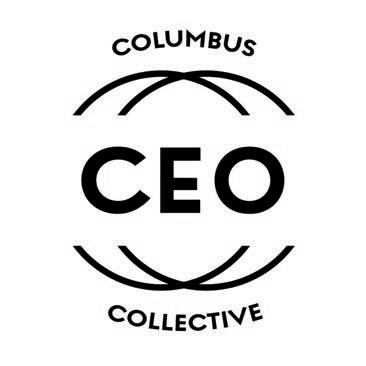
well to do good
KIMBERLY A. BLACKWELL
DONALD BROWN
CARRINGTON M. CARTER

ROBERT E. CHILTON
SANDRA MOODY GRESHAM
THERESA HARRIS
BRANDEN JONES
DR. ELIZABETH JOY
KEVIN LLOYD

Providing
JORDAN MILLER
DAN MONCRIEF
DAVID A. MOODY
JONATHAN MOODY
JERRY SAUNDERS, SR.
ALEX SHUMATE
KEITH STEVENS
BILLY R. VICKERS
ARCHIE D. WILLIAMSON JR.


Jerry Revish’s career is a testament to authentic leadership and unwavering commitment to ethical reporting. From his early days in Youngstown to his significant tenure in Columbus, Jerry has exemplified what it means to lead with integrity and compassion.
Starting his broadcast career in Youngstown, Jerry Revish quickly made a name for himself with his dedication to ethical journalism. Moving to Columbus, he spent six years at WBNS Radio, where his humanistic approach to news coverage began to take shape. This commitment continued and deepened during his 45 years as a prominent television anchor and reporter for WBNS–10TV.
Among Jerry’s many achievements, his reporting from the frontlines of global conflicts stands out. As the first Columbus broadcaster to report from Saudi Arabia during the Persian Gulf War, he brought critical insights and a human touch to the conflict’s complexities. His international reporting always brought in the nuances and feelings of traditionally marginalized voices where he provided a compassionate lens on world events.
Some of Jerry’s most gratifying moments involved stories of profound personal impact. He played a pivotal role in exonerating Walter Smith, a Columbus bodybuilder wrongfully convicted of rape, through DNA evidence. This case was a powerful demonstration of Jerry’s dedication to justice and truth. Another highlight of his career was conducting two exclusive White House interviews with President Barack Obama, showcasing his ability to engage with key figures on crucial issues.
Over his illustrious career, Jerry was nominated for an Emmy Award 30 times and won 13 awards, a testament to his exceptional reporting skills and journalistic integrity. His commitment to both his profession and community was further exemplified by his service as a chaplain for the Franklin County Sheriff’s Office.
Jerry’s leadership extended beyond journalism into his role as a pastor. For 37 years, he served under Pastors Ernest and Ruth Jordon at Hall’s Memorial Church of God in Christ and Greater Works Ministries. In 2011, he and his wife cofounded Unity Temple Church of God in Christ, where he continues to empower marginalized voices and advocate for social change. His dual roles as a broadcaster and pastor allowed him to offer both spiritual guidance and practical support, enriching the lives of those he served.
Reflecting on his journey, Pastor Revish would advise his younger self to embrace boldness and risk-taking more, without taking life so seriously.
Though he retired from WBNS-TV in November 2019 after 45 years, his legacy of authentic leadership, ethical journalism, and compassionate ministry continues to inspire and impact those around him.
By W. Kay Wilson


In today’s society, being influential transcends popularity or recognition. It embodies the capacity to effect positive change, to inspire others, and to leave a legacy of progress.
Charles Hillman, the President and CEO of the Columbus Metropolitan Housing Authority (CMHA), epitomizes this kind of transformative influence. His leadership is about fostering a vision where housing becomes a cornerstone for community development and individual empowerment.
Key to CMHA’s success during Hillman’s tenure is expanding on existing partnerships and collaborating with new partners that have helped CMHA achieve national recognition as among the nation’s most effective and innovative large public housing agencies.
His journey with CMHA began with a deep-rooted commitment to addressing housing insecurity, dating back to a housing internship he participated in after graduating from Bowling Green State University over 30 years ago. Under his leadership, CMHA has evolved from a custodial Public Housing Authority operating at a deficit to a real estate powerhouse, providing housing opportunities to all income levels. Hillman’s influence is evident in his holistic approach – one that integrates housing development, residential supportive services, and economic impact.
Hillman’s philosophy is clear: stable housing is a foundational right, essential for building a successful life. This belief underpins his every action and decision, guiding him in his mission to transform CMHA and the lives of its residents.
One of Hillman’s notable achievements is his advocacy for sustainable and inclusive housing. He has championed the development of mixedincome and mixed-use communities, recognizing that diversity strengthens neighborhoods. Hillman
ensures that CMHA developments are vibrant, inclusive, and resilient by promoting communities that integrate housing and commercial space. This approach not only addresses immediate housing needs but also fosters long-term community cohesion and economic stability.
Hillman’s influence extends beyond the bricks and mortar of housing developments. He understands that true leadership is about empowering others. Under his guidance, CMHA has forged partnerships with developers, national non-profits, and economic institutions to create pathways for residents to be successful. Programs offering job training, financial literacy, and health services are now integral components of CMHA’s housing strategy. Hillman’s vision is one where housing is a platform for opportunity, enabling residents to achieve their fullest potential.
Hillman’s leadership style is characterized by empathy, integrity, and a relentless pursuit of excellence. He is constantly seeking innovative solutions to complex housing challenges. His ability to inspire his team and mobilize resources has positioned CMHA as a model for other housing authorities across the nation.
Hillman’s work demonstrates the powerful impact of thoughtful, compassionate, and strategic leadership on individuals and communities. His leadership will continue to inspire and influence people for generations to come.










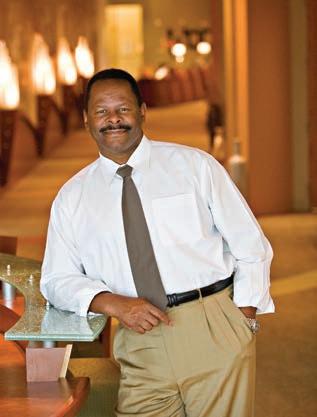

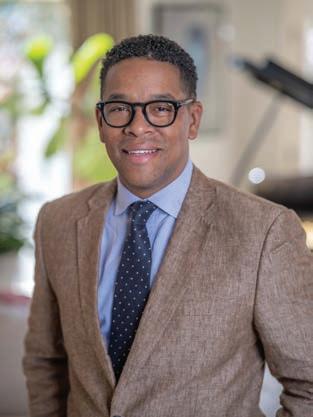





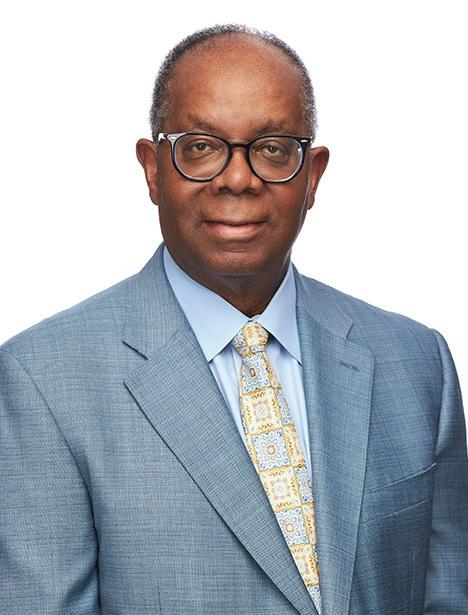

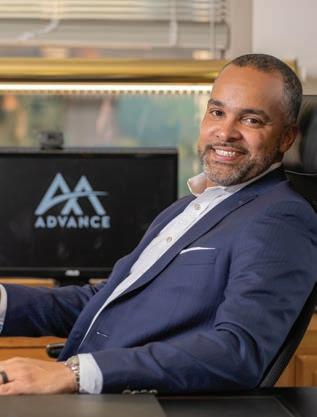


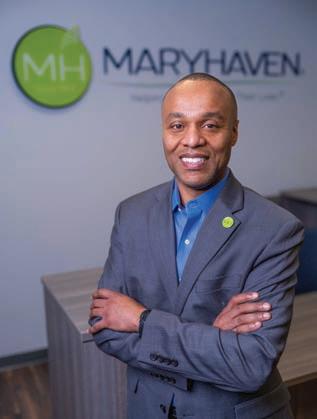
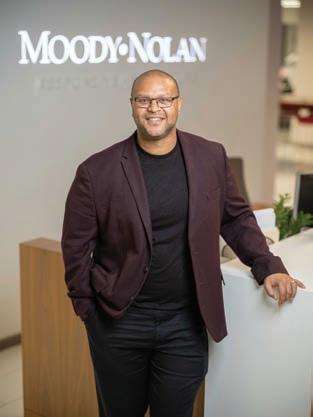

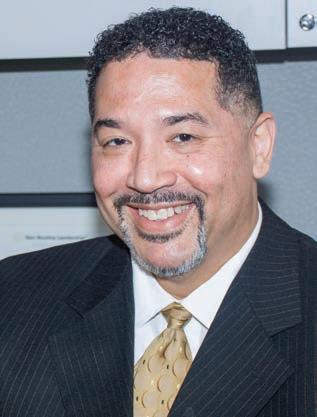






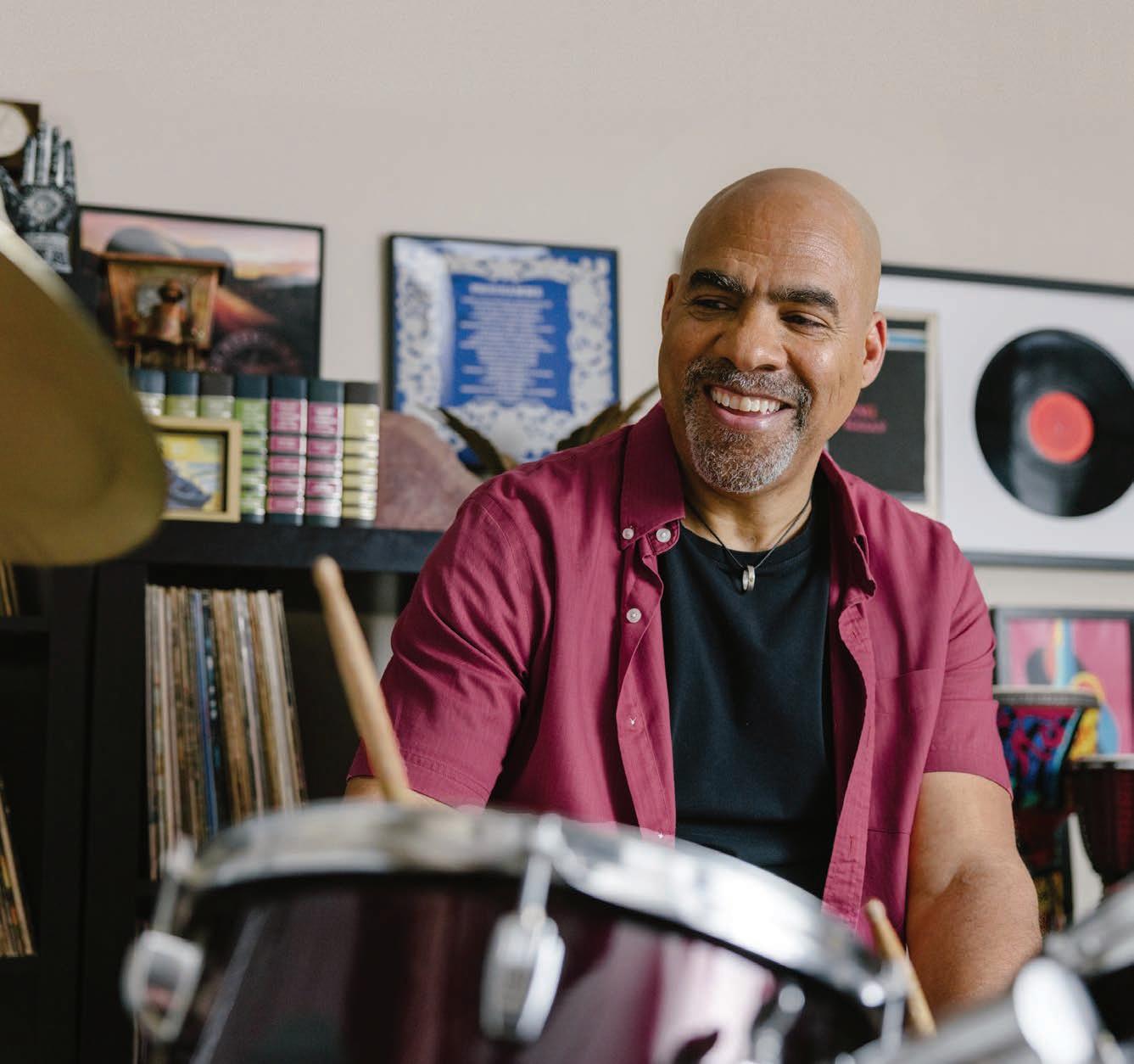

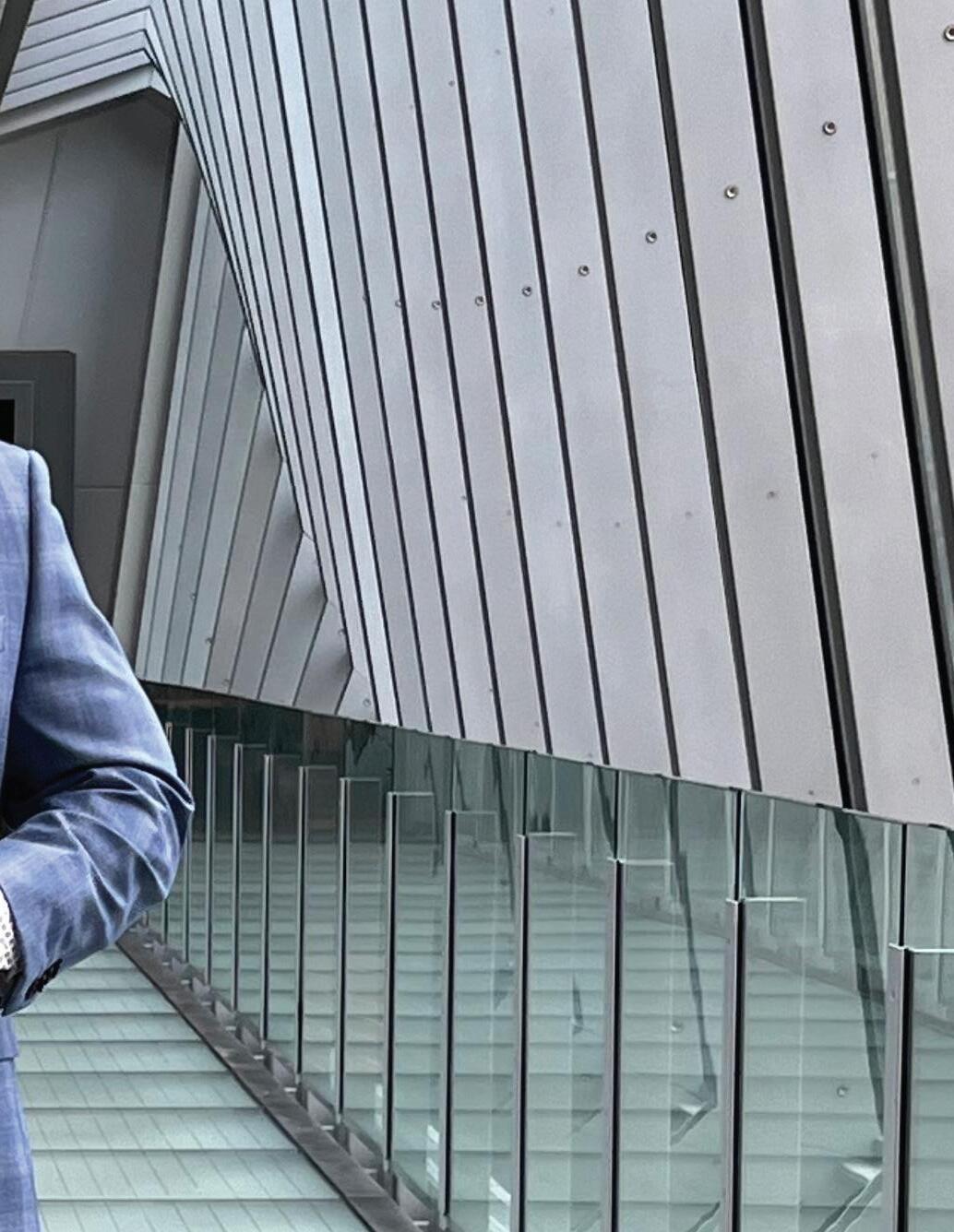
Chris Borja Founder
Chris is an award-winning speaker, trainer, and consultant specializing in business networking, and a prominent figure in Columbus, Ohio.
A first-generation Filipino American, Chris’ journey is deeply rooted in the values instilled by his parents, Ben and Tessie, who immigrated to the United States in the 1970s for a better life. They taught him the importance of dreaming big, working hard, and prioritizing family.
Chris founded the CONNECTED Networking Group and authored the bestselling book “Networking Essentials for Success: A 7-Step Journey to Achieve Your Goals Through Authentic Relationships and Connected Communities.” Despite struggling with shyness, introversion, and a fear of social settings for the first 37 years of his life, he transformed these challenges into strengths and emerged as a leading voice in the networking community.
Chris is on a mission to make the world a better place, one connection and one community at a time. He believes that diversity is our strength, and we are better together. By expanding the CONNECTED Networking Group to 10,000 chapters by 2035, he aims to have over 5 million members globally, creating a movement of empowered networkers and connected communities.
Recognizing the need for networking skills, Chris launched the Networking Breakthrough Academy. While most understand the importance of networking, few have learned how to do it effectively.
The Academy fills this gap by providing comprehensive training in networking skills, offering essential knowledge, systems, and tools to accomplish virtually any goal.
In addition to his work with the Academy, Chris provides corporate consulting to help organizations integrate networking concepts, transforming them from the inside out. His approach enhances corporate culture, leadership, teamwork, recruiting, retention, productivity, and drives revenue growth.
Chris also developed The CONNECTED TOOLKIT—an all-in-one CRM, website, and marketing software designed to build meaningful relationships and foster community growth.
Chris’s personal life is equally inspiring. He has been married to his wife, Belinda, for 26 years, and together they have raised two grown children, Noah and Zoe. His story of overcoming adversity and making a lasting impact on his community serves as a beacon of hope and inspiration.
As an influential person of color in Columbus, Ohio, Chris exemplifies the power of authenticity and resilience. His commitment to empowering individuals and building stronger, more connected communities reflects the core values imparted by his parents and guides his ongoing efforts to create positive change.


ANew York City native and graduate of Columbus College of Art and Design, Corey Favor is an awardwinning leader and design expert with more than 20 years of experience in entrepreneurship, art direction, technology, business development, and community engagement.
As the Senior Director of Community Engagement, Arts, and Culture at Orange Barrel Media/ IKE Smart City, Corey leads a dynamic team that manages partnerships in the arts, small business, education, and nonprofit sector across 28 markets. He also spearheads new community initiatives and programming, and charitable giving initiatives in support of OBM’s mission of pioneering landmark media & Smart City technology to improve lives in cities.
Prior to his current role, he held various positions in design leadership, product management, user interface, and digital design at OhioHealth, Radio One, Who’s Who Publishing and The Ohio State University. He also served as co-owner of Milk Crate Concepts, a boutique graphic design firm in Columbus, Ohio.
A champion for the arts and community, Corey is the co-founder of Creative Control Fest (CCF), an annual conference and platform that centers creatives of color and advocates for diversity within the creative community, and a board member for The Columbus College of Art and Design (CCAD), The Gateway Film Center, Creative Ohio, and the Atlanta Contemporary Museum.
He is also a proud member of Alpha Phi Alpha Fraternity, Inc., and The Merry Makers Club, which was founded in 1926, making it the oldest social club in Columbus, Ohio. Corey was also a recipient of the Emerging Arts Leader Award from the Greater Columbus Arts Council and the Spirit of Columbus Award from the Columbus Foundation.
Favor lives on the Near-Eastside of Columbus with his wife Shayla and their pups, Hudson and Arizona.


Curtis L. Williams President/CEO
Alifelong resident of Columbus, Curtiss has had a front-row seat to the city’s transformation. Raised in one of the city’s more impoverished neighborhoods, he saw firsthand the impacts of unemployment and systemic issues like redlining and transportation policies. These challenges fueled a determination to reshape his community.
As President/CEO of (COCIC), Curtiss has become a leading voice in the county’s land use and redevelopment efforts.
COCIC, founded in 2012 by the Franklin County Commissioners, and its subsidiary, the Central Ohio Community Land Trust (COCLT), are one of the country’s most productive land bank/land trust networks.
From 2012 to 2022, COCIC demolished more than 3,500 blighted units and 205 acres of commercial property. The organization has also facilitated the environmental remediation of brownfields, abandoned gas stations, landfills and other unsafe structures. This includes safely closing and redeveloping the Bedford Landfill in Gahanna, which is now home to City View Gahanna.
COCIC has also become critical to solving the housing affordability crisis. The Land Trust is breaking down economic and racial barriers to homeownership and creating new pathways to housing. The Land Trust has built more than 100 affordable homes and plans to secure development partners for 500 homes by 2026.
For Curtiss, however, this work is about more than demolishing buildings or adding new ones. It’s about rejuvenating neighborhoods and creating places where
people and businesses thrive. As a result, COCIC has emerged as a national model for creating an efficient pathway from demolition to delivery.
Curtiss began his career at AEP, where he worked for 16 years in economic development roles. He left AEP for the opportunity to serve as Director of Development for the City of Gahanna, and later Senior Vice President at the Greater Columbus Chamber of Commerce. Curtiss also spent more than 10 years as a Development Consultant before joining the Franklin County Department of Economic Development and Planning.
Throughout his career, Curtiss has been committed to building new opportunities for the people and businesses in the community where he was raised. He has been involved in many national, state, regional and local organizations, including the International Economic Development Council, the Urban Land Institute, the Franklin County Transportation Improvement District and the Neighborhood Schools Partnership. Curtiss is also a founding member and past president of the Mid-Ohio Development Exchange (MODE). Columbus Business First has recognized him annually as one of the region’s top 100 most influential people.
Curtiss holds a Bachelor of Arts degree and has completed all course requirements for a Masters in city and regional planning from The Ohio State University. He is certified as a Housing Development Finance Professional (HDFP) by the National Development Council.


Densil R. Porteous Executive Director, Stonewall Columbus CEO, Pride Fund 1
Avisionary leader and advocate, Densil Porteous is a beacon of influence within the LGBTQ+ and broader communities. Born in Jamaica and now a proud American citizen, Densil’s journey is a testament to resilience, diversity, and the power of inclusive leadership.
Densil’s formative years instilled in them a deep understanding of cultural diversity and the importance of community. Their academic journey led them to Kenyon College, where they began their career in higher education administration. Holding pivotal roles at esteemed institutions like Stanford University, Columbus College of Art & Design, and The Ohio State University’s Wexner Center for the Arts, Densil honed their expertise in admissions, strategic marketing, and development/fundraising.
Parlaying their knowledge from academia to the tech and startup sectors, Densil leveraged their skills to advise and collaborate with innovative companies like Zinch (acquired by Chegg), Vireo Labs, and others. In 2015, they launched DePorteous Consulting, blending their professional experience with personal passions to foster growth and support for nonprofits and diverse executive leaders.
As CEO of Pride Fund 1, an LGBTQ+ focused venture fund, and Executive Director of Stonewall Columbus, Densil champions the rights and representation of the LGBTQ+ community. Their leadership at Stonewall Columbus, particularly during the annual Pride Festival and March, reflects their commitment to creating safe, inclusive spaces that celebrate diversity.
Densil has over 20 years engaging in nonprofit work as a volunteer and leader,
at local and national levels, primarily working with organizations focused on issues of equity and access. They have held board positions with Advocates for Youth, the Human Rights Campaign, Equitas Health, The Legacy Fund of the Columbus Foundation, and the Create Columbus Commission, among others. Their involvement underscores their dedication to advocacy and social justice.
In addition to their board roles, Densil has spoken at numerous events, including a notable panel with the Milken Institute. Their insights on the importance of investing in diverse communities and fostering inclusive environments resonate with many.
A proud member of the Jewish faith, Densil’s personal journey is as diverse as their professional one. Their blog, “Think Higher, Feel Deeper: Destination Unknown,” delves into topics of US politics, social issues, and personal reflections, offering readers a glimpse into their thoughtful perspective.
Densil Porteous inspires and leads with compassion and vision. His work with Columbus-based Pride Fund 1 and Stonewall Columbus exemplifies a commitment to fostering a world where diversity is celebrated, and everyone has the opportunity to thrive.
Their ongoing efforts to support and uplift marginalized communities remain a driving force in their desire to leave the world better than they found it. With each step, Densil Porteous redefines what it means to be a true catalyst for change in today’s world.


In the world of finance and community empowerment, Derrick Bailey stands out as a visionary leader, and a catalyst for change. As the CEO of Telhio Credit Union, the local financial institution has made a significant impact on the lives of countless individuals and families. Founded in 1934, Telhio began with a group of phone company employees and engineers who sought to create opportunities for each other and their families by forming their own credit union.
Born and raised in Columbus, Derrick understood from an early age the importance of access to financial resources and the power of economic stability in transforming lives. His interest in finance and business led Derrick to earn a bachelor’s degree in business administration from the University of Toledo and pursue and receive a master’s degree in business administration from Capital University. With a strong sense of purpose and a commitment to ensuring access to financial services to the community, Derrick embarked on a career in the banking industry, determined to make a difference in the lives of those who needed it the most. Rising through the ranks with dedication and perseverance, he eventually found himself at the helm of Telhio, a community-focused institution with a mission to empower individuals through financial education and access to affordable banking services.
Under Derrick’s leadership, Telhio Credit Union has flourished, expanding its reach and impact in communities across Ohio. With the sustained commitment to community, Derrick helped lead Telhio to achievements like becoming a Top Ten
Small Business Lender in the Columbus District by the U.S. Small Business Administration for three consecutive years. He led the way in expanding Telhio’s presence by increasing the number of branch locations serving his communities, earning Telhio notable recognition as of one of America’s distinguished Regional Banks and Credit Unions, a recognition bestowed by Newsweek, and acknowledgment as one of Forbes 2024 Best Credit Unions in America.
Telhio is a Community Development Financial Institution (CDFI), designated by the U.S. Department of Treasury, which is a designation received by financial institutions who share a common goal of expanding economic opportunity in lowincome communities by providing access to financial products and services for residents and businesses. The achievement of this designation under Derrick’s direction led the credit union to be featured in the award-winning PBS documentary series, Opportunity Knocks.
Philanthropy and service are imperative to Derrick. Beyond his role as CEO, Derrick is an advocate for local charitable organizations, previously having served as a board member of both the Ronald McDonald House Charities of Central Ohio, and the board of directors of March of Dimes. He supports and encourages his associates to volunteer, offering paid volunteer time off to all employees. He actively promotes initiatives to increase representation of people of color in the credit union movement and works determinedly to create a more equitable and inclusive financial system for all.
Derrick Clay Senior Vice President Shumaker Advisors

Derrick is a respected statewide business leader, experienced lobbyist, political strategist and community advocate with a strong background in government relations and economic development. Derrick’s journey began just a day after a pivotal election in 1970, when he was born in Toledo, Ohio. From a young age, it seemed as though he was destined for a path in politics. Even in grade school, Derrick’s involvement in student activities reflected his leadership, and by high school, he was a dominant force, serving as class president for three of his four years. His influence extended to the University of Akron, where he was President of the undergraduate student government.
Graduating from Akron, Derrick moved to Columbus, a city that would become a significant part of his life. His first role in Columbus was as a legislative aide in the Ohio House of Representatives. This position laid the groundwork for his future, leading to his tenure as the Executive Director of the Ohio Legislative Black Caucus and later, as the state Field Director for the Ohio Democratic Party. Here, he bridged the gap between the 88 democratic county chairs and the state party, honing his skills in coordination and campaign strategy.
In 2000, Derrick’s career reached a historic juncture when he was appointed Ohio State Director for the Gore-Lieberman presidential campaign. His work during the Florida recount was a testament to his resilience and dedication. After
the tumultuous 2000 election, Derrick transitioned to the role of Midwest Political Director for the Democratic Congressional Campaign Committee, where he recruited and managed candidates across the Midwest.
In 2004, Derrick returned to his true calling, joining New Visions Group, the first African American lobbying firm in Ohio, founded by his mentor Ed Hogan. Derrick’s leadership and entrepreneurial spirit led him to acquire the firm in 2014 and later sell it to Shumaker Advisors in 2021, where he now serves as Senior Vice President.
Derrick’s impact on Columbus is profound. He’s seen as a change agent, having played a crucial role in revitalizing key neighborhoods like the King Lincoln District, Short North, and Downtown. His leadership in establishing the first Diversity, Equity, and Inclusion (DEI) committee at the Mid-Ohio Regional Planning Commission reflects his commitment to fostering inclusive growth.
Reflecting on his career, Derrick would advise his younger self that life’s challenges are part of a greater plan, and that faith and perseverance will shape one’s destiny. His legacy, he hopes, will be that of someone who shaped Columbus’s growth and contributed to its thriving community, leaving behind a trail of progress and a commitment to positive change.
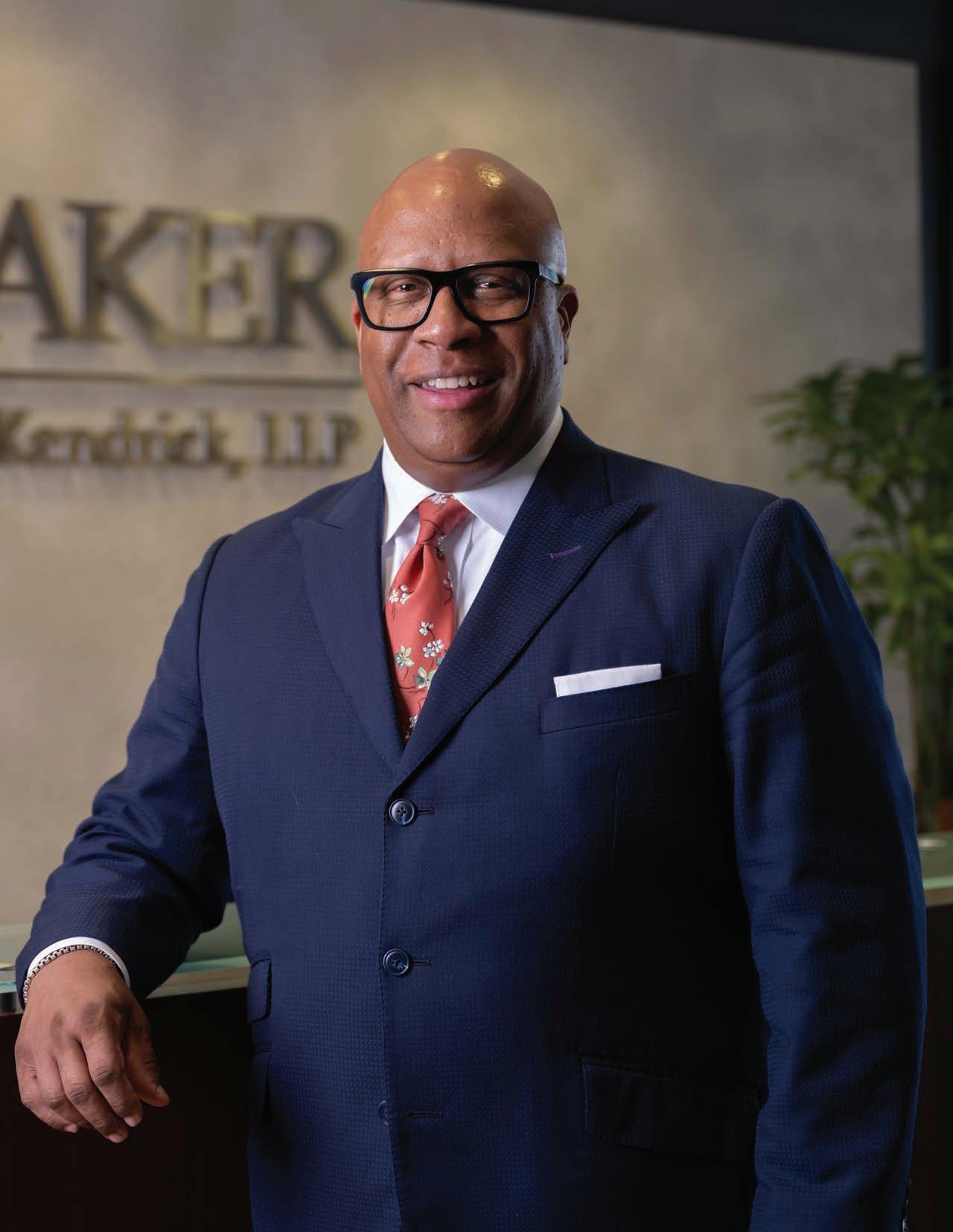


Applying the lessons of success in technology to the challenges of community is the space Doug McCollough has carved for himself in Columbus since the late 1990s.
As the Columbus region has benefited from technology-fueled growth, he has focused on sharing the benefits of innovation to all communities. To McCollough, tech is one of many tools that can be used to extend beyond historic barriers.
As CEO of Color Coded Labs, Doug works to demystify tech careers for members of historically marginalized communities, addressing both the need for economic opportunity within the community and the industry’s need for talent. In addition to leading the company, he stands as an inspirational example of a person of color operating at the highest levels of the industry.
Color Coded Labs is a 19-week intensive training program that teaches adults the skills needed to become software developers. The program exposes people from overlooked talent pools to career pathways that can lead to generational wealth-building opportunities in the highsalary tech sector.
Doug has been named the Executive Director of The Beta District, a collection of technical assets and resources focused on innovation in Smart Mobility, including transit, safety, delivery, EV Charging, along highway 33 in Central Ohio. He organized “Mobility In Color,” convening business leaders of color to create opportunities in mobility focused industries.
After earning a degree in Information
Systems from the University of Toledo and an MBA from the University of Notre Dame, McCollough’s path as a technologist and his passion for Ohio communities have advanced in close coordination. His career has included roles in the Bell Labs division of Lucent Technologies and various departments of the State of Ohio. As the first CIO of the City of Dublin, Ohio, McCollough explored the relationships between technologies and community interests. He is active with the Intelligent Communities movement and led in the exploration of Smart Mobility concepts.
One of few African American tech leaders in the region, Doug co-founded BlackTech614 to help other Black technologists find and associate with a network of peers. Deeply concerned with the growing digital divide, he also co-founded The Columbus Rising Project to promote digital well-being in communities of color.
McCollough’s belief that technology benefits communities is reflected in his activities. He serves on the Advisory Board of Per Scholas Columbus, the board of TECH CORPS, and Jewish Family Services of Columbus. He is the recipient of the 2020 Champion for Women Award from EmpoWER Women of Information Security and the 2018 Ohio Public Sector CIO Academy Municipality CIO of the Year. Color Coded Labs was honored with the Minority Business of the Year BizTech Award in 2021 and a Diversity in Business Award in 2024.
Doug’s four adult children are all graduates of HBCUs. He and his wife, Angela Abram, are residents of Reynoldsburg, where she is President of the Reynoldsburg City School Board.v

Dwayne Carter is a dedicated salesman and passionate community mentor based in Columbus, Ohio. With over 14 years of experience in automotive sales, he has established himself as one of the Top Automotive Sales Associates in Central Ohio, earning a strong referral business through hard work and dedication. Leveraging over a decade of industry knowledge, Dwayne provides his customers with expert advice and personalized solutions to meet their unique needs. By emphasizing his extensive experience, community involvement, and customer-centric approach, Dwayne explains he has been able to effectively brand himself as a trusted and reliable automotive sales expert who goes above and beyond to serve both his clients and the community.
His journey has been marked by resilience and a commitment to helping others. During his previous time in federal prison, he made it a mission to assist his cellmates in earning their GEDs, fostering a sense of hope and empowerment. This experience fueled his passion for community service, particularly in supporting the youth in Columbus, with a special focus on the North Side of the Linden community.
Dwayne Carter is the proud president and founder of the Browns of Columbus B.O.C., an organization that combines the excitement of football with community support. Additionally, he is an ELK brother with the Prosperity Lodge #1791, where
he continues to contribute to community welfare.
Above all, Dwayne is a devoted husband, father of four adult children and three adult bonus children, and grandfather to four wonderful grandchildren. Dwayne explains, his family is his greatest source of pride and joy, and Dwayne is actively involved in their activities and extracurricular sporting events and activities.



Ernest Levert Jr. is a passionate, community-oriented and ambitious servant-leader. A native of Dallas, TX and the son of two Buckeyes, Ernest received his Bachelor of Science in Biomedical Engineering from The Ohio State University before pursuing his passion for financial health and economic empowerment. After spending 5 years in the financial services industry as a personal financial coach, Ernest transitioned into youth workforce development, serving as a Achieve More & Prosper (AMP) Program Manager with IMPACT Community Action and Quality Assurance Manager with Lead the Way Learning Academy. In these roles, he supported and enhanced programming that provided career coaching services, postsecondary preparation activities, and leadership development for high school students.
Ernest also serves as the Founding Director of The Royal Oak Initiative (ROI), an innovative chess-based social change agency that uses the wisdom of chess to protect, heal and build community by cultivating collective wellness, mindfulness, and critical thinking. Through his work with ROI, Ernest hosts chess-based community gatherings at local businesses, supports
Ernest Levert Jr. Founding Director
and launches chess clubs in partnership with youth-serving organizations, and facilitates intensive and engaging chess-inspired leadership development training for youth and the young at heart. Ernest strives to provide culturally responsive chess enrichment experiences for all, with a specific focus on creating a welcoming and affirming environment for Black and Brown people.
Ernest enjoys spending his time learning and serving with New Salem Missionary Baptist Church, Alpha Phi Alpha Fraternity Inc. Alpha Rho Lambda Chapter and the Columbus Urban League Young Professionals. Ernest also serves as the Lead Organizer for the Columbus Hub of Black Men Build, a political organization focused on organizing and activating Black men to build socio-political power for the Black Community. Ernest currently resides in Columbus, OH with his partner, Ivory and children, Zamya and Zenith.

Gary D. Lewis Jr. Chief of Police
Gary D. Lewis Jr. is the 10th Chief of Police for the City of Bexley, Ohio and the first African American to serve in this role in the city’s 119year history. Previously, he was the Assistant Vice President/Chief of Police at the University of Louisville and provided administrative leadership and operational management for departments to include e.g. Police, Dispatch, Emergency Management, Fire Marshal, Parking Office, Marketing Communications, and Business Services while since August of 2018. The daily functions include implementing and maintaining a Campus Security Master Plan and while ensuring enforcement of Campus Security Rules and Regulations to meet federal guidelines.
Lewis served as the Chief of Police at Cleveland State University from 20152018 and prior to that, he spent 22 years with the Ohio State Highway Patrol where he retired from in 2013. During his tenue within the organization, Lewis served as Post Commander at several different locations and also as the Division’s Public Information Officer (PIO) where he was responsible for crisis communications, media/ marketing, public records, and statewide communications.
Additionally, Lewis served as the Senior Director of Media and Public Relations at The Ohio State University from 2013 to 2015 where he acted as spokesperson for all University-related matters. His responsibilities included handling the day-to-day operations within Media & Public Relations, strategic communications and planning for senior leadership, along with managing public records.
Lewis holds a master’s degree in criminal justice from Michigan State University, a bachelor’s degree in public safety management from Franklin University, an associate’s degree in visual communications, Art Institute of Pittsburgh, and is a 2003 F.B.I. National Academy graduate. In 2017 Gary completed the Executive Leadership course, which focused on Crisis Communication at Harvard University’s John F. Kennedy School of Government. He is married to wife Krysta, and the proud father of Cameron, Gary III, Nathanael, Ross, whom all are or have proudly served in the United States armed forces, and his beautiful daughter Ivy.
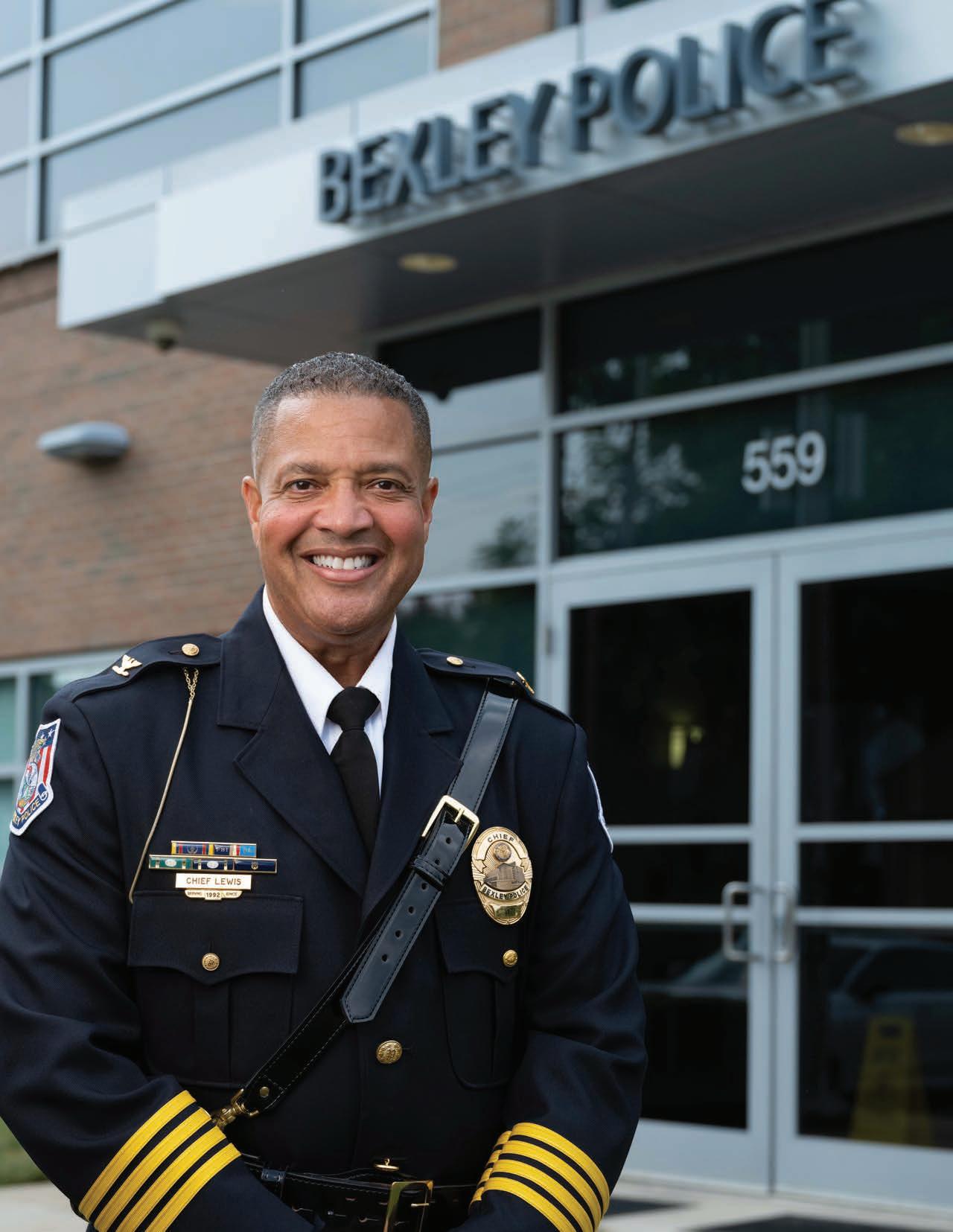


enator Hearcel F. Craig brings private sector experience and a strong background of public service to the Ohio Senate, following two terms in the Ohio House and seven years on the Columbus City Council. Craig is currently the Assistant Minority Leader for the Ohio Senate Democratic Caucus and Sergeant-At-Arms for the Ohio Legislative Black Caucus. His legislative priorities include reforming the criminal justice system, protecting voting rights, commonsense gun reform, and ensuring all Ohioans have access to quality health care, safe and affordable housing, education, and economic opportunities.
Earning his BSBA from Franklin University and MSA from Central Michigan University, Craig was also a national fellow at Boston University School of Public Health and attended Ashland Theological Seminary. He proudly served our nation in the U.S. Army from 1970-1972. Craig is a graduate of the Ohio Executive Institute, Leadership Columbus, Leadership Ohio, the Council of State Government’s (CSG) Henry Toll Fellowship, and the Bowhay Institute for Legislative Leadership Development (BILLD) Fellowship. He serves on the CSG Executive Committee and co-chairs the CSG Education and Workforce Committee. Craig is a lifetime member of the NAACP, and his community service further extends to chairing and providing long-term service on numerous community boards.
Senator Craig has received a number of awards for his contributions to his community and Ohio, including the Columbus Public Schools Golden Ruler
Award; Foster O. Newlin Award by his fraternity, Kappa Alpha Psi, Inc.; Healthcare Hero Award, Columbus Neighborhood Healthcare Centers, Inc.; Public Servant of the Year award by Community Shares of Mid-Ohio; AMVETS Department of Ohio Legislator of the Year; and the first-ever Distinguished Alumni Award from Leadership Ohio.
Throughout his career, Senator Craig has worked tirelessly in the Ohio General Assembly to bring resources and funding to his district. Some of his achievements include securing $750,000 for a newly constructed East Side Dental Clinic that will bring vitally needed services to the community in collaboration with the Ohio State University (OSU). Senator Craig also worked diligently to secure $1 million for the renovation of OSU’s Department of African American and African Studies Community Extension Center in Near Eastside.
Craig has worked tirelessly to preserve and memorialize Ohio’s history by celebrating the sacrifices and achievements of Black Americans. In 2021, thanks to Senator Craig, the Ohio General Assembly passed legislation to make Juneteenth a paid state holiday. Senator Craig was also instrumental in passing Senate Bill 31 which designated Poindexter Village as a historic state site.
Aside from his legislative work, Craig serves as an Associate Minister at the First Church of God. He and his wife, Linda, are the proud parents of four children, eleven grandchildren, and four greatgrandchildren.

Kenneth N. Wilson was appointed County Administrator in January 2015. As County Administrator, the highest unelected post in county government, Mr. Wilson leads 14 county agencies with more than 1,400 employees and oversees the County’s annual $2.2 Billion budgeting process for 35 agencies to ensure Franklin County remains one of the finest, best-governed counties in the nation. Mr. Wilson was hired in 2005 as Director of the County’s Office of Management and Budget. In 2010, Mr. Wilson was elevated to the role of Deputy County Administrator for Resource Management, overseeing several agencies including Job and Family Services, the County’s largest social service agency. Mr. Wilson was again promoted to County Administrator in January 2015.
Before joining the county team, Mr. Wilson was a Director of Policy for the Ohio Senate Minority Caucus. He holds a master’s in public administration from Ohio University and a B.A. from James Madison College at Michigan State University, where he majored in Public Affairs, Metropolitan Studies, and Business. He served as Chairperson of the Solid Waste Authority of Central Ohio and president of the County Administrators Association of Ohio. He serves as President of the National Association of County Administrators, Vice-Chair of the National Association of Counties (NACo) Healthy Counties Initiative Advisory Board, NACo Programs and Services Standing Committee, Board Member of Ohio City/
County Management Association, Chair of the Ohio City/County Management Association, Diversity Equity and Inclusion Committee, and a member of NACo Large Urban County Caucus; NACo International Economic Development Task Force; NACo Finance, Pensions, and Intergovernmental Affairs Steering Committee, Ohio University Leadership, and Public Affairs Advisory Committee; United Way of Central Ohio, Economic Mobility Coalition, Equity Now Coalition, Confluence Community Authority NCA, Board member for Hickory Chase Community Authority; Former Chair, Solid Waste Authority of Central Ohio; Classic For Columbus; Experience Columbus and Designee for Franklin County Investment Advisory Board and Franklin County Emergency Management Agency.
Married to DeShawna “Reesie” Wilson, two adult daughters, resides in Grove City, Ohio.
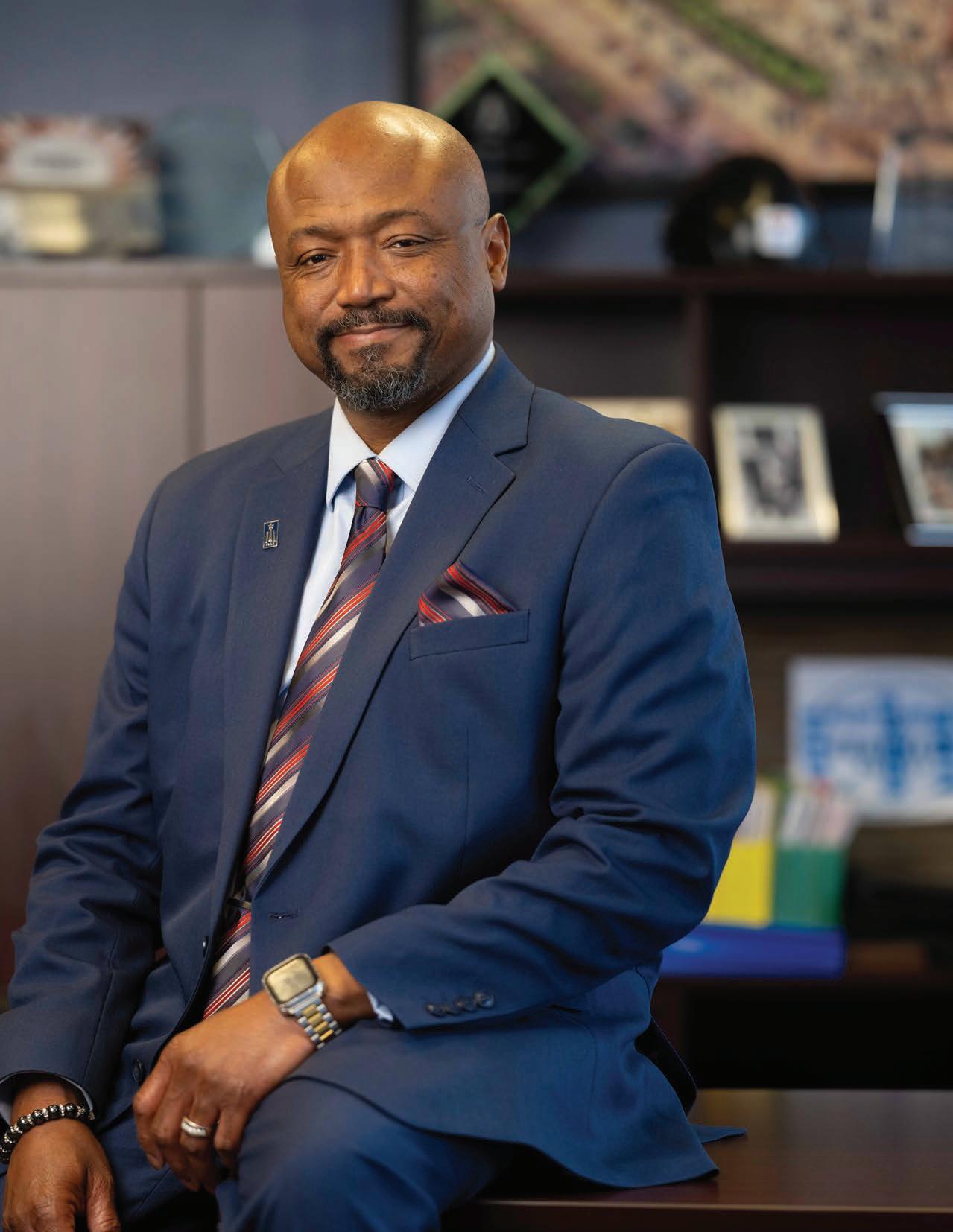

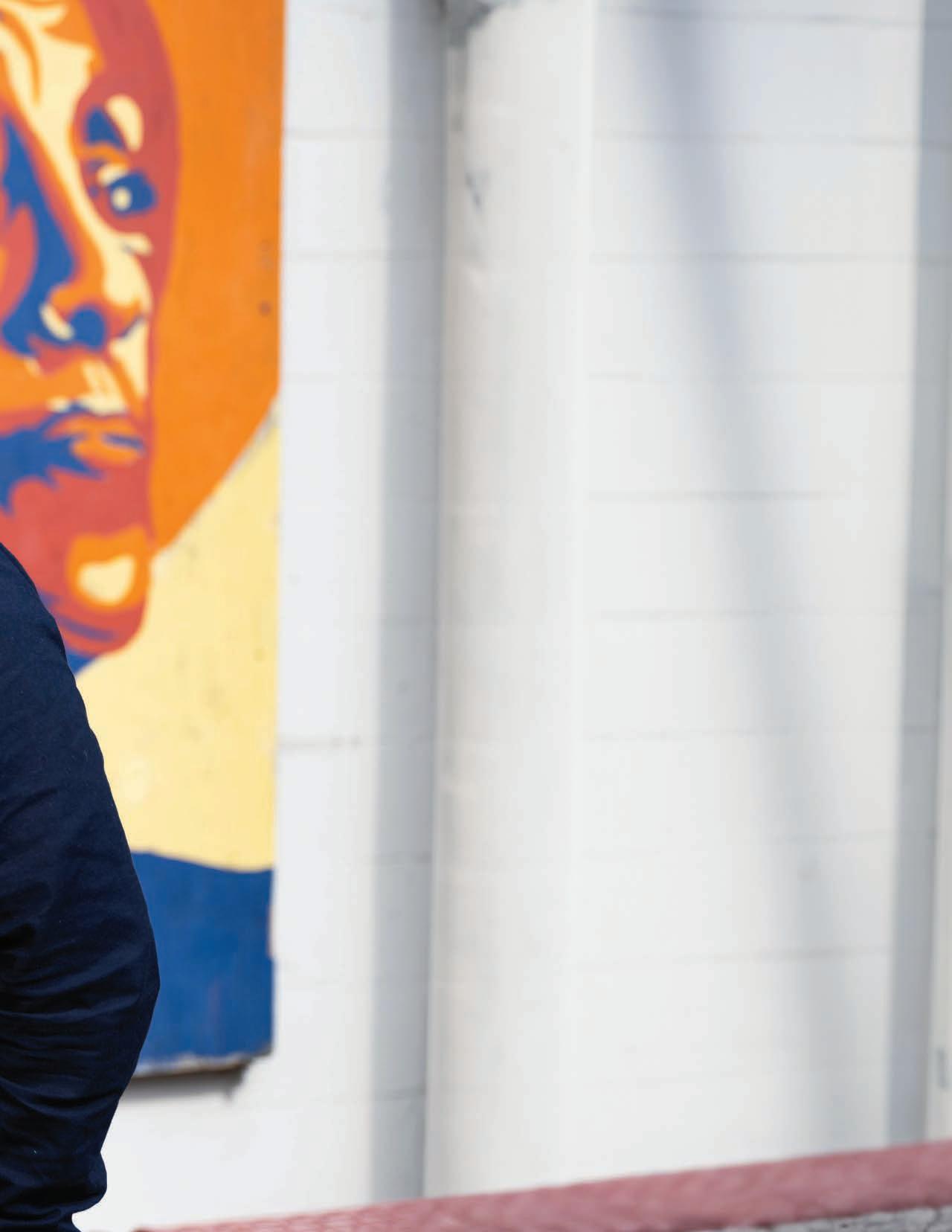
In a world where art is a powerful tool for social transformation, Marshall Shorts stands as a testament to the enduring impact of creativity in driving meaningful change. As the founder of Artfluential, a studio dedicated to amplifying voices through design, Marshall has forged a path that blends artistic expression with social justice. His journey began over 15 years ago, driven by a deepseated desire to highlight Black artists who have historically used their talents to challenge societal norms and advocate for equality.
Through Artfluential, Marshall collaborates with a diverse array of clients, including the City of Columbus and the Central Ohio Transit Authority (COTA), utilizing his platform to champion diversity and equity within the creative industries. His initiatives extend beyond client work; Marshall is the visionary behind Creative Control Fest, an annual conference that celebrates and empowers Black creatives and creatives of color. This event not only showcases artistic talent but also fosters a community committed to driving cultural change.
Marshall’s commitment to advocacy is further exemplified by his leadership in the “Deliver Black Dreams” initiative, launched during the civil unrest of 2020. This campaign mobilized artists, designers, public officials, and businesses to stand in solidarity with the Black Lives Matter movement, advocating for systemic change and the realization of Black aspirations.
His influence extends to broader community engagement through initiatives
Founder & CEO Arttfluential Studio
like the Black Creatives Manifesto, a guiding document advocating for recognition and support of Black creativity in all its forms. Marshall also plays a foundational role in the Maroon Arts Group and is active in stewarding funders’ contributions to a capital campaign of the historic Pythian Theater. The planned renovations will serve to underscore arts programs that reflect cultural richness and community.
Marshall’s thought leadership has garnered recognition on international stages, including two TEDx Talks, where he shares insights into the intersection of creativity, activism, and community building. His work has been featured in numerous publications and conferences, earning him accolades for both his creative vision and his leadership in advancing social change through art.
Above all, Marshall values his roles as a servant leader within his family and community. He counts these relationships as his most significant achievements, grounding his work in a personal commitment to fostering a more equitable and inclusive society.
Marshall Shorts is a beacon of change in the space of cultural branding and creative activism. Through Artfluential and his myriad initiatives, Marshall continues to pave the way for a future where artistic expression amplifies voices, challenges perceptions, and inspires action toward a more just and compassionate world.

Obie Stillwell Founder
Obie’s Breakfast Club & TV Host of “The Football Fever”
Obie Stillwell, the former Buckeye football player who (with the retiring of veteran-host Clay Hall) is the longest tenured television host of “The Football Fever” A show which covers Ohio State Football each Saturday on ABC 6 / Fox 28 WXYS.
Though known for his smile and signature bowties, it is his candor, insight and relatability that keeps him front of mind not only on Buckeye Saturdays but in Business and in the Community. Obie has a way of making those who watch him feel as though they have known him for years; like a trusted friend, and these feelings transcend age, color and gender.
Obie stated, “One of the best compliments I have received was when an older gentleman recognized me and approached me to say hello. We chatted for about 5 minutes and while saying goodbye he stated, You come across on television as an approachable person, it’s refreshing to find out that is actually who you are in person also.”
“Being from Mansfield, Ohio the son of a former Pastor, Obie could not imagine himself being any other way. His parents taught him how to love, put family and community first and to listen. Additionally, he was taught to create space for others; specifically, if you are younger try to create space for those that are older and when you are older create space for those who are younger. And if you have a voice, create space for the voiceless.”
With this ideology, Obie created a quarterly platform.
Obie’s Breakfast Club is where he invite business professionals from various backgrounds and communities for networking under one unified Commitment, which is to deprogram and reprogram their “isms” and be “human only” for about 2.5 hours. Many attendees say that Obie’s Breakfast Club is more than “networking” it is an experience!
Using much of his platform to help others Obie typically doesn’t promote his own initiatives, but ways to supports Obie would be:
Attend, Invite, Inform and Sponsor www.obiesbreakfastclub.com, Next experience is September 12th.
Help grow my organization called www.acommmunityreach.com where I am President/CEO and we oversee (11) communities that consist of 254 doors of HUD 202/811 Elderly and Disabled Affordable Housing. We are currently looking for collaborations, donors, and partnerships to acquire more land for development. As a registered 501c3 when you give to A Community Reach either financially or through a donation of land or buildings to further our Mission your gift is considered a tax-deductible contribution, yes even the land and buildings at full fair market value. Lastly, I am a consultant and a connector, so do not hold me to a singular “ability” or “title” I have fresh ideas, and I can typically help or direct in diverse areas.



Kenny R. Hampton is the President of the African American Male Wellness Agency (AAMWA), the health and wellness arm of the National Center for Urban Solutions (NCUS), a multi-million-dollar national social enterprise. NCUS and AAMWA are strengthening communities in more than 18 cities through workforce development, education, and health and wellness initiatives that are improving the economic mobility of Black families while addressing health equity through public and private partnerships.
Under Kenny’s leadership, AAMWA is closing the gap in health equity by bringing the clinic to the community across the nation. AAMWA’s programmatic resources in fatherhood, mental wellness, financial wellness, mentorship, women’s health, opioid awareness and harm reduction, and research holistically support Black men and their families to increase life expectancy and quality of life. AAMWA engages Black men and their families in more than 16 US cities, including Columbus, OH; Houston, TX; Atlanta, GA; and Charlotte, NC, to name a few, with plans for continued expansion next year.
A Detroit native, Kenny is a former professional athlete turned entrepreneur, award-winning speaker, and the bestselling author of “The Underdog Mentality.” He is a proud graduate of HBCU (Kentucky State University) and holds two Ivy League certifications from the Wharton School of Business and Columbia University. Kenny is a husband, father, and servant leader. He also serves as the Board Chair at Kingdom Image Arts.
Perry Gregory
Senior Vice President of Corporate Business Development and Workforce Services National Center for Urban Solutions
Perry Gregory is a visionary leader who has dedicated his life to creating equitable solutions for urban communities, following his father’s legacy. He is the Senior Vice President of Corporate Business Development and Workforce Services at the National Center for Urban Solutions (NCUS). NCUS is a multi-million-dollar national diversified enterprise that improves outcomes for urban communities in more than 18 cities with solution-based tools in workforce development, education, and health and wellness.
Perry has over 15 years’ experience establishing innovative partnerships with Fortune 500 companies and government agencies, generating thousands of jobs and career upscaling opportunities for untapped communities. He is passionate about serving the community and leads industry sector partnerships with public and private partners that aim to create economic opportunity for untapped individuals in emerging industries.
Perry is also deeply committed to community service, which he shows through his participation in various committees and organizations. He is a member of the Ohio Manufacturing Association Workforce committee, the Ohio EV Workforce Committee, the Franklin County Digital Equity Coalition, and the Youngstown/Warren Chamber workforce committee. He also volunteers with the African American Male Wellness Agency and the Academy for Urban Scholars.
Perry is a proud graduate of an HBCU (Central State University), where he majored in Business Management and was a member of the football team. In his spare time, he enjoys spending time with his family, traveling and researching.

Robert E. Lee III Founder/President
Touchstone Hospitality
In the vibrant world of hospitality, where innovation and leadership drive success, Robert E. Lee III stands out as a trailblazer. Originally from Detroit and now a proud resident of Columbus, Lee’s journey is one of remarkable achievements and groundbreaking firsts.
Lee’s career spans an impressive range of establishments, from neighborhood restaurants and fast casual eateries to private clubs, upscale hotels, and national restaurant brands. His ability to thrive in such diverse environments is a testament to his versatility and commitment to excellence. Noteworthy among his ventures are The Linden Café, Brownstone on Main, The Lofts Hotel, and The Capital Club, Tim Horton’s and Donatos, each reflecting his dedication to quality and innovation.
Lee’s influence extends beyond traditional hospitality roles. He has achieved a series of pioneering milestones that have solidified his reputation as a leader in the industry. He was the first to open a Tim Hortons at a U.S. airport. His innovative spirit also led him to introduce the first Donatos airport location. Additionally, Lee made history as the first Black postsecurity owner/operator at Columbus Metropolitan Airport (CMH) and as the first Black general manager of a private club in Columbus. These accomplishments highlight his role in breaking barriers and setting new standards in the hospitality sector.
Lee’s contributions have not gone unnoticed. He has earned numerous accolades that underscore his impact on the industry and community. He was named Donatos Franchise Partner of the Year and received the Ohio Restaurant & Hospitality Alliance’s Ambassador Award. His commitment to employment and community service earned him recognition from the Greater Columbus Helping Hands and the Columbus Urban League, respectively. Lee’s entrepreneurial spirit was celebrated when he was honored with the EE Ward Entrepreneur of the Year Award at the Columbus Black Achievement Awards. He has also been listed in Who’s Who in Black Columbus and recognized as Entrepreneur of the Year by the Columbus Chapter of the National Black MBA. Additionally, he has been distinguished as Business First Forty Under 40, an alumnus of Leadership Columbus and The African American Leadership Academy.
Lee’s story is a testament to visionary leadership and a deep commitment to excellence in the hospitality industry. His achievements inspire countless others to push boundaries and achieve greatness, making him a true pioneer and an influential figure in his field.
Robert and his wife, Dawn Tyler Lee, live on the eastside of Columbus with their two adorable, yet ornery pups, Chiqui and Charli, both rescues from Puerto Rico



Chief Financial and Administrative Officer
Partnership
Throughout history, powerful voices have shaped societies, inspired change, and moved mountains.
Sean Grant is a prime example of such a voice, one that resonates with purpose and a deep commitment to fostering equity and opportunity. His professional journey underscores a dedication to not just managing finances, but actively lifting others and creating pathways for those who historically have not full participation in the levers of opportunity.
Sean currently serves as the Chief Financial and Administrative Officer for the Columbus Partnership and One Columbus, and as the Chief Financial Officer of Smart Columbus, LLC. In these roles, he oversees a broad spectrum of operations including accounting, budgeting, human resources, insurance, real estate, IT, and investor relations. His strategic oversight is crucial in maintaining the fiscal health and operational efficiency of these influential organizations.
Before stepping into his current roles, Sean built a distinguished career in banking and finance. As a Federal Reserve Bank Examiner, he gained invaluable experience. He further honed his skills in commercial banking working with middle market and multinational corporations, with some of the nation’s largest financial institutions. He further honed his skills in commercial banking with National City Bank, working with middle market and multinational corporations. His expertise spans structured financing for mergers, acquisitions, and real estate ventures, demonstrating a robust capacity for navigating complex financial landscapes.
Over the past decade, Sean has shifted his focus toward leadership in both private and
non-profit sectors. His work has centered on preserving fiscal health while addressing operational challenges. His passion for economic equity drives him to champion the causes of entrepreneurs, startups, and community advocates, particularly those from underrepresented communities. Sean’s mentorship and advocacy aim to provide people of color with greater access to multigenerational wealth opportunities, helping to bridge the racial wealth gap and reduce poverty.
Sean’s commitment to economic development extends beyond traditional investments. He works diligently to enhance the Columbus economy by aligning initiatives with Central Ohio’s social, environmental, and economic priorities. His leadership style emphasizes servant leadership, encouraging community engagement in economic development efforts that impact lives. He focuses on nurturing local entrepreneurship, fostering innovation, and ensuring that economic benefits are widely distributed.
In addition to his executive roles, Sean is actively involved in numerous advisory and board capacities. He contributes to Franklin County Business Growth, Equity Alliance, Freedom Equity, Inc., the Columbus Chamber of Commerce, and many more. He chairs the Columbus Region Green Fund and is a founding member of the Columbus CEO Collective, a group of Black business CEOs dedicated to wealth and economic equality. Sean and his wife Maureen are proud parents of four adult children, reflecting his deep commitment to family and community.
Sean Grant’s voice and leadership continue to drive meaningful change, promoting a more inclusive and equitable economic future for all.

Recent headlines predict an uncertain future for corporate diversity, equity, and inclusion (DEI) programs. But you’d never get that from talking with Shayne Downton. He’s as passionate about DEI as he’s ever been. And it’s a gospel he’s been preaching for over 20 years.
Downton is Director of Diversity, Equity, and Inclusion for Mount Carmel, leading DEI strategy and initiatives for the 138-yearold central Ohio health system. He spent more than a decade before that as Chief Diversity and Inclusion Officer at the United Way of Central Ohio, turning the nonprofit into a DEI leader not just in Greater Columbus but throughout the United Way network.
He did that by doing what he does best: building relationships.
“Shayne has forged productive and effective relationships with people at all levels of our organization,” said Mount Carmel CEO Tauana McDonald, who oversees 8,000 colleagues and 1,900 physicians. “He’s helped reframe and restructure our approach to DEI, and he’s done it with an inclusive, collaborative mindset.”
The results speak for themselves. Since joining the Mount Carmel leadership team, Downton’s efforts have helped the health system achieve some of the highest DEI performance scores for health care in the country. And his newest initiative should ensure that continues. He recently led a year-long process to create health equity plans for each of the organization’s five hospitals.
“Our goal is to identify disparities in clinical measures among people of color and then work together to resolve those disparities,” Downton said of the three-year project. “That includes identifying and targeting conditions like diabetes and hypertension that disproportionately affect people of color, adding programs and training to address them, and making sure those goals are met across the system.”
It’s the kind of data-driven approach that Downton values and works best in a mission-driven organization like Mount Carmel that understands the value of health equity.
“We appreciate Shayne’s scientific approach,” McDonald added. “By using data and performance metrics, he makes sure that stakeholders understand there’s not just a moral case for DEI, but a business case as well. We couldn’t be more pleased with the programs he’s put in place and the difference they’re making within our organization and in the community.”
Downton’s impact does go well beyond hospital walls. He also serves as president of the board of Columbus Public Health, as a Columbus Humane board member, on the Southwestern City School District’s DEI Committee, and on the city of Grove City’s first-ever Diversity Task Force.
“I always say the most important letter in DEI is the I,” he concluded. “Because without inclusion – without engaging and energizing everyone – we’ll never be as successful as we could be.”


PHOTOGRAPHY

Think Make Live Youth is a social enterprise non-profit, organization.
Terry is also the CEO and Lead Consultant of Breaking Statistics LLC, social justice consulting firm as well as the Founder of the Social Justice Awards, a celebration event dedicated to honoring outstanding professional and community leadership.
Terry has over 12 years of experience in public speaking, eight years of nonprofit executive leadership and provided over 200+ presentations in more than 12 cities throughout the United States.
He is a national leader providing effective solutions and strategies to support diversity, equity and inclusion, youth empowerment, as well as community enrichment for companies, organizations, schools, and outreach groups.
Terry is a graduate of Franklin County YouthBuild and received the national YouthBuild USA Outstanding Commitment to Leadership and Social Justice Award. He is an alumnus of the United Way of Central Ohio Neighborhood Leadership Academy. As a young community activist, Terry also served as a Community Organizer for America Forward Today’s Student Campaign.
He serves on the Supreme Court of Ohio Subcommittee on Responding to Child Abuse, Neglect and Dependency. Recently he has been appointed to serve as a Board Member for Franklin County’s Rise Together Innovation Institute which is an
organization aiming to decrease poverty within Central Ohio.
Terry is a young man who has experienced poverty, overcame the justice system, mental health struggles, youth homelessness as well as loss of many close family members and friends.
Terry got his criminal record expunged in 2020. And he is a marketing guru with over 30,000 followers on LinkedIn. He has pushed through many challenges in his life and now he is dedicated every day to provide more innovative strategies, resources and opportunities for youth, returning citizens and executive leaders to thrive today.

Pastor Yaves Ellis has been preaching since his early teens and has been Lead Pastor of New Birth Christian Ministries since 2020. A native of Columbus, OH, Pastor Ellis spent many of his formidable years ministering the Gospel through the avenue of Christian Rap. As a successful artist, he gained national acclaim through releasing a number of Billboard and iTunes charting projects.
He has spent years working in prison ministry, touring facilities as far as New Jersey, and developing a ministry model that is focused on reaching the underserved and disenfranchised. For over 15 years Pastor Ellis worked as an executive in the radio industry, and for over 6 years hosted the number one radio show in central Ohio. Having held an executive position in the radio industry for over 15 years, Yaves also hosted the top-rated radio show in central Ohio for more than six years. Studying at Ohio Christian University, Pastor Ellis obtained his Masters in Pastoral Care and Counseling. In 2017 Yaves co-founded Canvaas Consulting LLC, a full service marketing firm engaging clients in various industries.
An effective communicator of God’s Word, Pastor Ellis believes in teaching the Gospel and providing listeners with practical application. The belief that followers of Christ should impact every facet of our communities can be seen in his work outside the four walls of the church. Pastor Ellis serves on many advisory boards,
works closely with local universities, and advises City government on the importance of equitable policies. Recently Pastor Ellis has been a founding partner in an initiative to provide free mental health counseling to young people dealing with trauma. This program called More Life Trauma Care has provided over $300,000 in free counseling services to families since 2022.
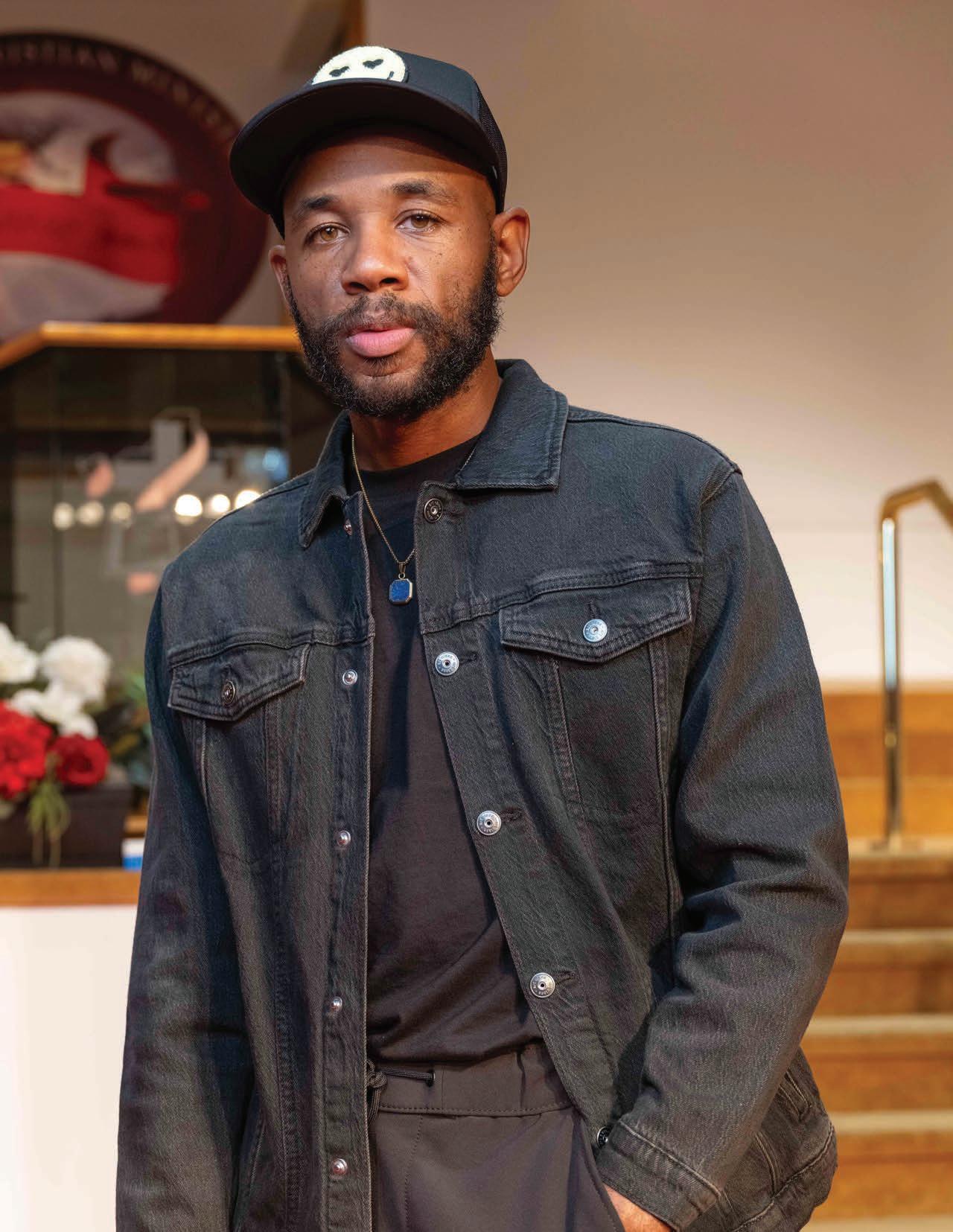
By Christopher Brown MD, MPH, FACP

Sickle cell disease (SCD), a genetic blood disorder primarily affecting individuals of African descent, is a legacy of resilience, forged by centuries of natural selection as a defense against malaria. While SCD has roots in the past, the future holds promise for improved care and potential cures.
SCD is a disorder that affects the red blood cells in our body. Normally, red blood cells are round and flexible, allowing them to move easily through blood vessels. In people with SCD, these cells become stiff and crescent or “sickle” shaped. This abnormal shape can cause the cells to get stuck in blood vessels, blocking blood flow and causing severe pain, infections, and organ damage. It’s a significant health condition that impacts daily life and overall well-being.
The effects of SCD can be life-altering, causing severe pain episodes, chronic anemia, organ damage, and increased vulnerability to infections. However, early detection through newborn screening is crucial for timely diagnosis and intervention, improving health outcomes and quality of life for affected individuals.
Managing SCD involves comprehensive care focused on preventing complications, reducing pain, and improving overall health. Hydroxyurea, a medication that helps produce healthier red blood cells, has been a cornerstone of SCD treatment for many years. Additionally, innovative companies like Functional Fluidics (https://www. functionalfluidics.com) are playing a vital role in advancing SCD care by providing specialized blood cell testing
that supports personalized treatment plans and the development of new therapies.
The future of SCD treatment is bright, with promising therapies like gene editing and bone marrow transplants on the horizon. Gene editing offers the potential to correct the underlying genetic mutation, while bone marrow transplants can replace defective bone marrow with healthy cells, potentially curing SCD.
In conclusion, SCD is a complex and challenging condition with deep historical roots, but it is also a story of resilience and hope. Through advancements in care, promising new therapies, and the dedication of researchers and healthcare providers, the future holds the potential for improved outcomes and a brighter future for individuals living with SCD.

By Jonathan Beard
Iwasdelighted to attend community leader Mayo McKinde’s Juneteenth Festival Parade in Linden. It was a beautiful celebration of Black pride and spirit as group after group marched down Cleveland Avenue – that is – until a contingent representing Columbus City Council came walking by, smiling and waving.
Seeing them celebrating Black liberation was such a display of hypocrisy and cynicism, since they – led by council president Shannon Hardin -- have been such ardent defenders of the continued subjugation of the political power of Columbus’s Black community. Led by Hardin, the Columbus City Council voted to put a fake district election format on the ballot for approval— despite knowing that our nation’s
pre-eminent civil rights law firm, the NAACP Legal Defense Fund – had warned them that it may violate Section 2 of the Voting Rights Act of 1965, which guarantees geographicallyconcentrated minorities a federal right to elect candidates of their own choosing, without having their votes diluted by the votes of the majority.
So, as they walked happily down the street celebrating Black liberation, I couldn’t help being disgusted as they have more in common with state legislators of the Jim Crow south (or with Clarence Thomas today) than with anybody aligned with Black liberation.
After an earlier public records request for the city’s tax abatement for affordability policy, on April 12th I wrote to all councilmembers, saying: “I was horrified by how loose and meaningless the city’s affordability requirement of private developers is -- for all intents and purposes, there is no real requirement -- it appears to be purposefully designed to be easily sidestepped. (If you are interested, I could share more about its weaknesses so the council can exercise oversight and make it real.)”
After receiving no response, I wrote on May 21st asking each councilmember to respond to the following:
“1. Do we all agree that affordability is a critical issue -- particularly for Columbus’s Black community which has seen its homeownership rate plummet and percentage
of renters in unaffordable housing increase to more than 50%? (source provided in my April 2nd email below)
2. Are we all in agreement that the state preemption language allows the city to “regulate” rents for taxabated and/or city bondfinanced units? (language and link to statute below)
3. Were you previously aware that the administration was not requiring developers to show compliance with the affordability requirements for tax abatements?
4. Has any member followed up on my concerns about the city’s laughably poor tax abatement/affordability policy? if so, do you agree that the policy is damn poorly written and/or are there any areas you would seek to strengthen, and/ or are you interested in my analysis of its most glaring defects?
You can’t begin to think about a real solution if you can’t admit to facts. I would appreciate a response from all members (since you are all elected at-large and claim to represent every citizen).”
Not a single councilmember has responded: Black Columbus is being sold out. Still.
By Jessica A. Johnson

Before President Joe Biden dropped out of the 2024 race, a July 3rd CBS News/YouGov survey revealed that 58% of Black voters still wanted him to run for reelection. This poll only had a sample size of 2,826 registered voters, but I think it signifies the overall allegiance more so to the Democrats that many Blacks still have. Much of this has to do with how the Black vote historically shifted to the Democrats starting in 1932 with the election of Franklin D. Roosevelt. Seventy-one percent of Black voters backed him. Democratic support from Blacks continued with President Harry Truman in 1948, and the civil rights movement of the 1960s pretty much sealed the deal. Blacks were drawn to vote for John F. Kennedy after he and his brother Bobby helped get Dr. Martin Luther King Jr. released from a Decatur city chain gang in Georgia. President Lyndon B. Johnson, pushing through major civil rights legislation, ushered in more than 90% of Blacks standing firmly with his party. With Vice President Kamala Harris being endorsed by Biden and other prominent Democrats, especially African American women like Ohio
Rep. Joyce Beatty and California Rep. Maxine Waters, Black voter enthusiasm appears to be surging.
In May, the Pew Research Center published a survey that showed African American voters listed “improving education” and “strengthening [the] economy” as their top two domestic policy priorities. Education was addressed during the June debate between Biden and former President Donald Trump, as both discussed their records on historically black colleges and universities (HBCUs). Neither one mentioned detailed specific, but under Trump’s administration HBCU students benefitted from the reinstatement of year-round Pell grants, and Biden has put pressure on governors of 16 states with land-grant HBCUs to tackle funding inequities.
Education has always been highly valued in the African American community, and many HBCUs were founded by churches and missionary organizations because the objective was not just to develop an engaged citizenry of critical thinkers but to also nurture their souls as civic
servants. Students were encouraged, as 1 Peter 4:10 instructs, to use their gifts to minister to others as “good stewards of the manifold grace of God.” HBCUs with a Christian foundation are continuing this mission today and include Bethune-Cookman University, Paine College, Paul Quinn College, and Philander Smith University. BethuneCookman’s founder, Mary McLeod Bethune, famously said in her last will and testament that “I leave you faith. Faith is the first factor in a life devoted to service. Without faith, nothing is possible. With it, nothing is impossible.”
A great question regarding improving conditions for African Americans in a future debate between Harris and Trump would be to ask them what they think about the intersection of education, faith and community service, and more specifically, how would they describe themselves as public servants.
Jessica A. Johnson writes for Creators Syndicate and is a senior lecturer in the English Department at Ohio State’s Lima campus.
Marketing, Printing & Graphic Design

Vist www.jprintshop.com






















Your partner for better health and wellness
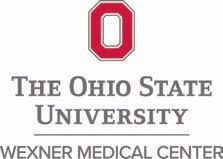

October 2, 2024 / 6 – 8 p.m.
During this free event, you’ll learn about:
• The importance of early detection in breast cancer survival
•How to perform breast self-exams
•Breast cancer survival rates and challenges specific to young Black females
•How to integrate early detection, self-exams and survival strategies into daily life

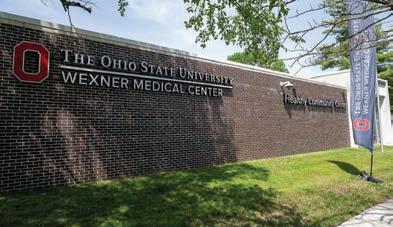
The Healthy Community Center is at 1600 E. Long St. on the Near East Side of Columbus
Open weekdays 8:45 a.m. – 5 p.m. with extended hours for some activities. Closed weekends and Ohio State holidays.

Scan the QR code or visit go.osu.edu/HCC to sign up for our newsletter and see a list of upcoming activities.
Bring a friend or meet a neighbor to explore our free activities and events, including:
• Fitness classes
• Senior activities
• Healthy café
• Urban garden partnerships
• Cooking classes in our teaching kitchen
• Earth-friendly/sustainability education and events
• Conference rooms for community gatherings
• Health screenings and education